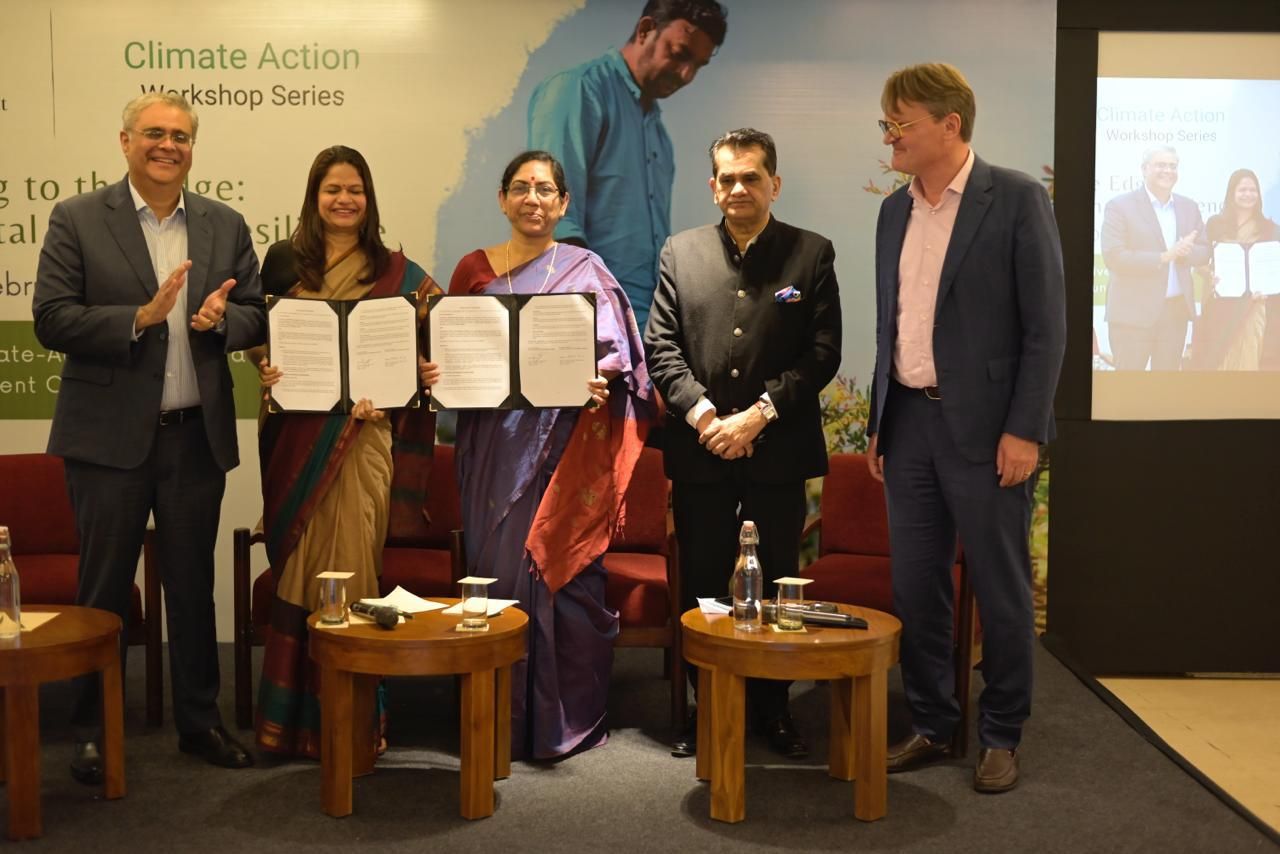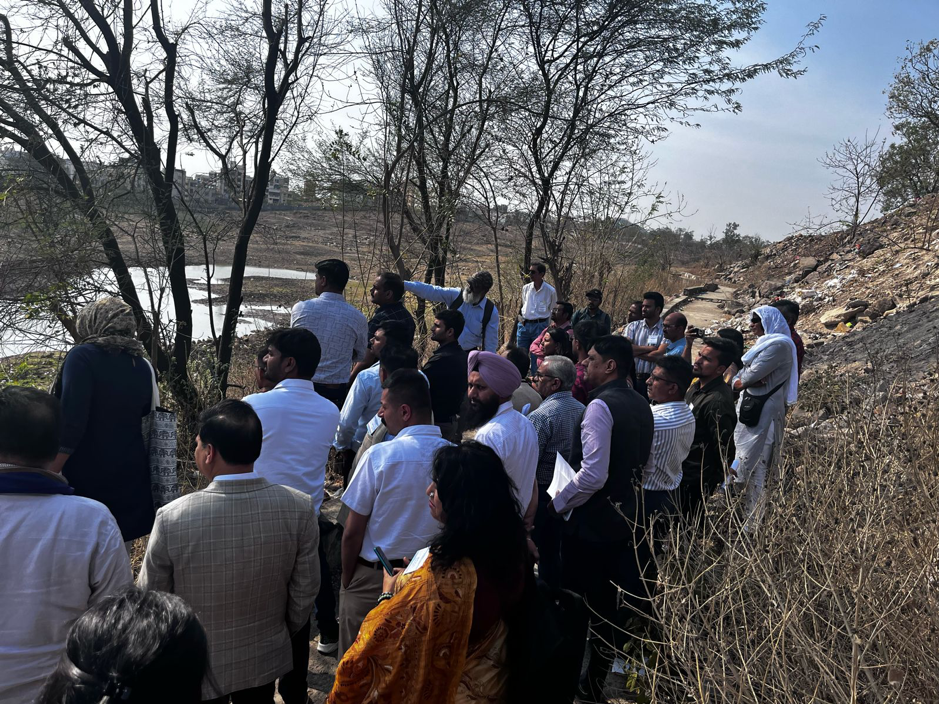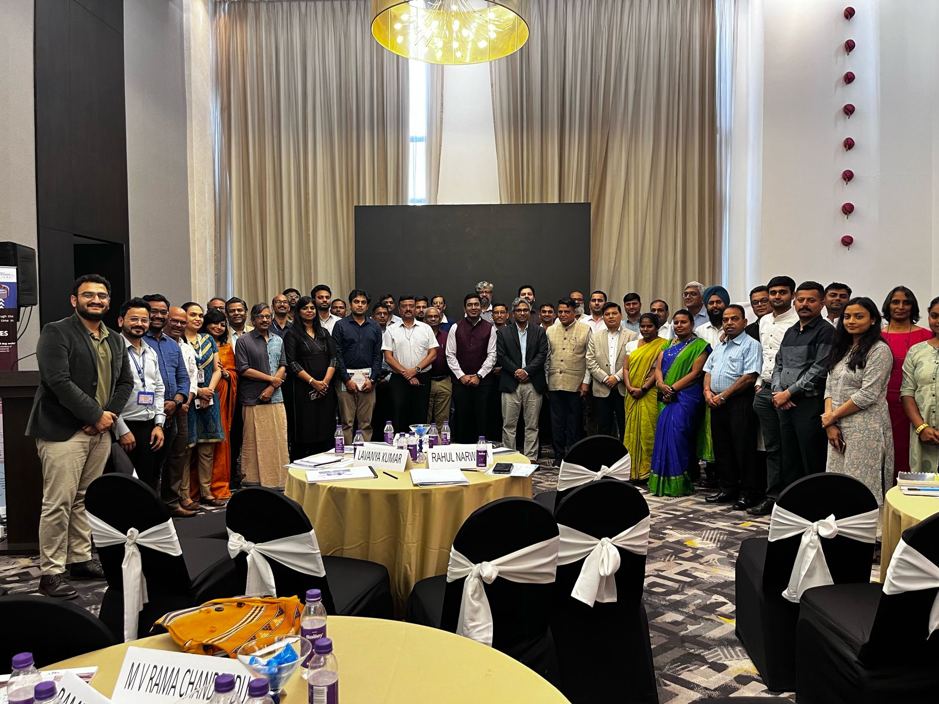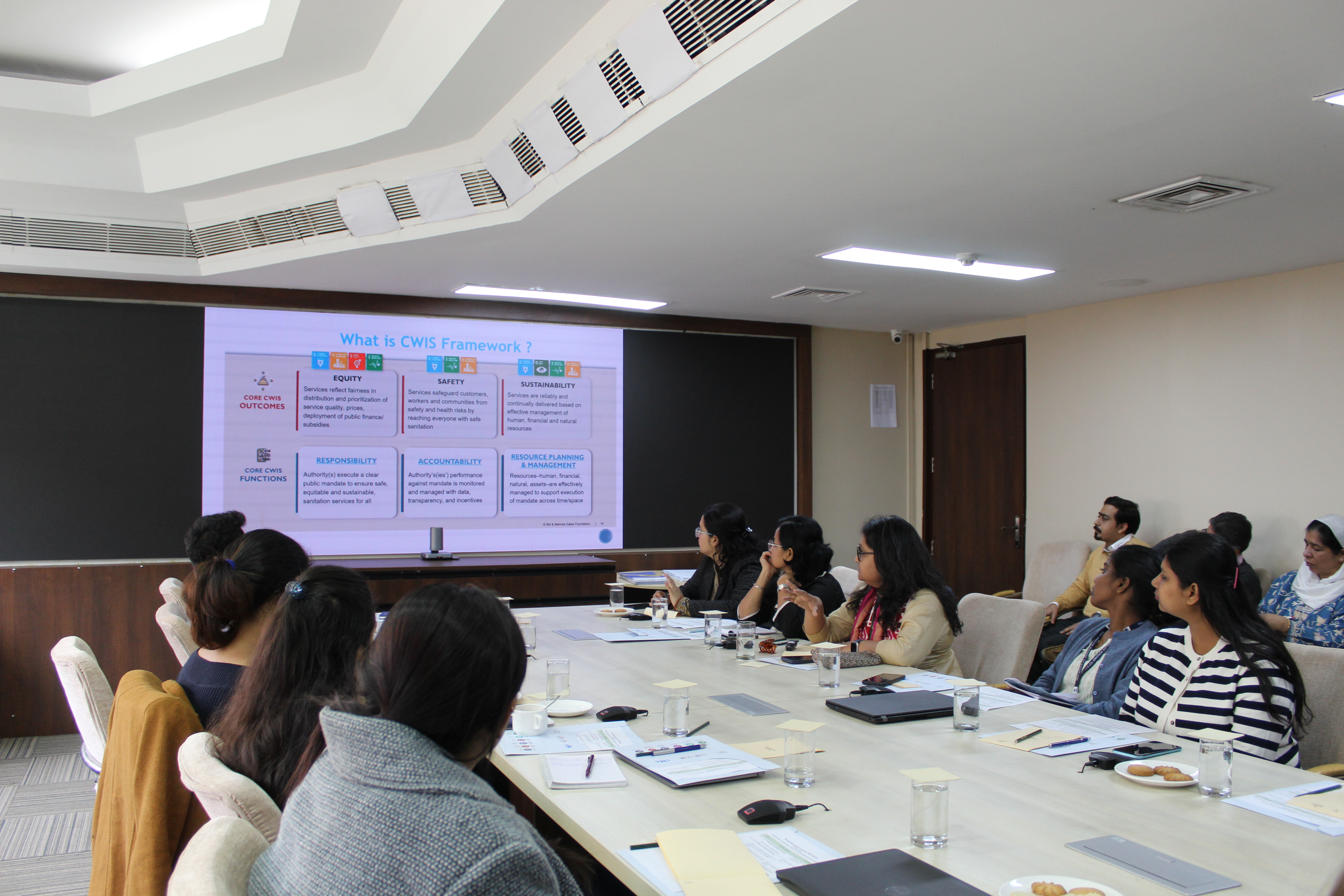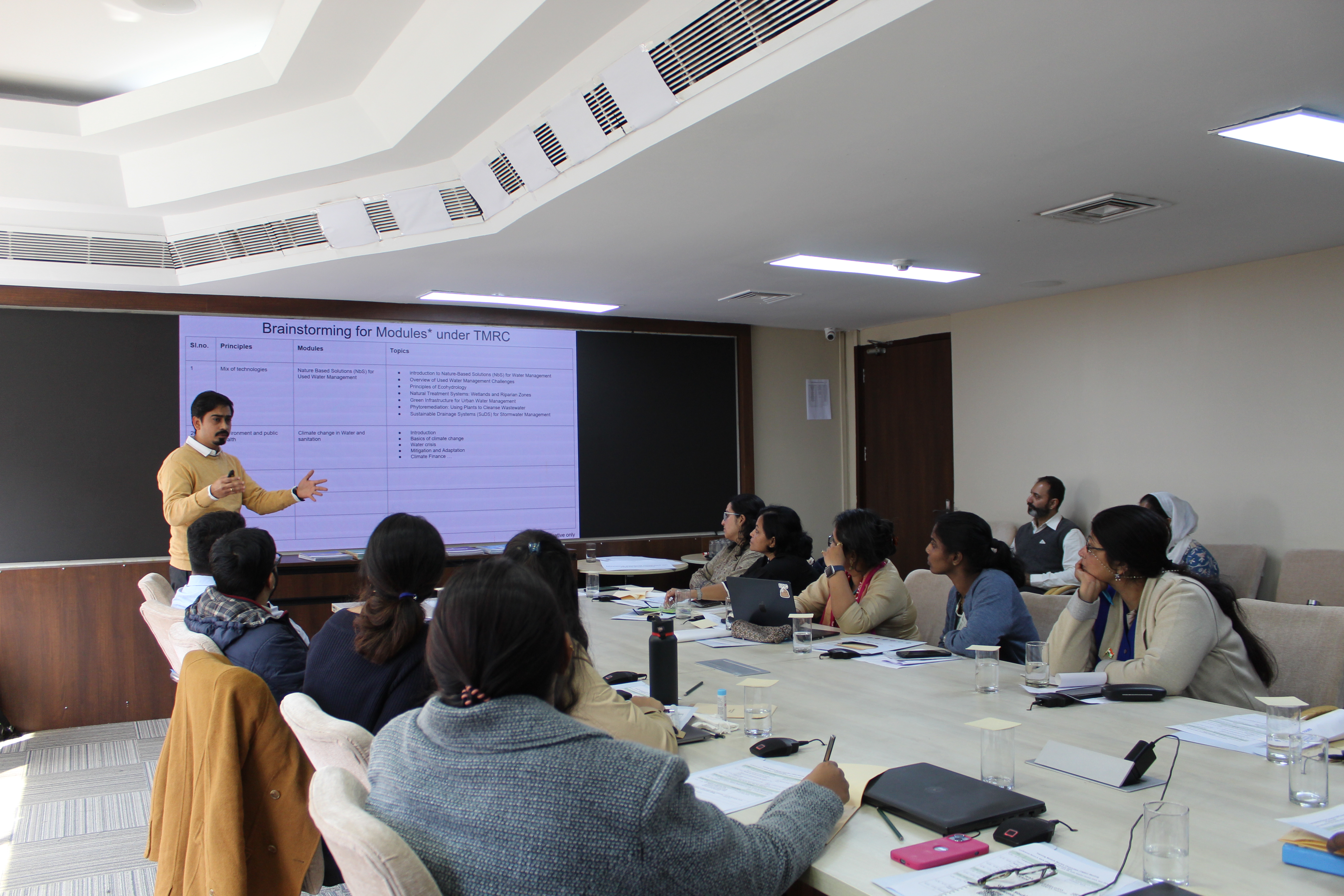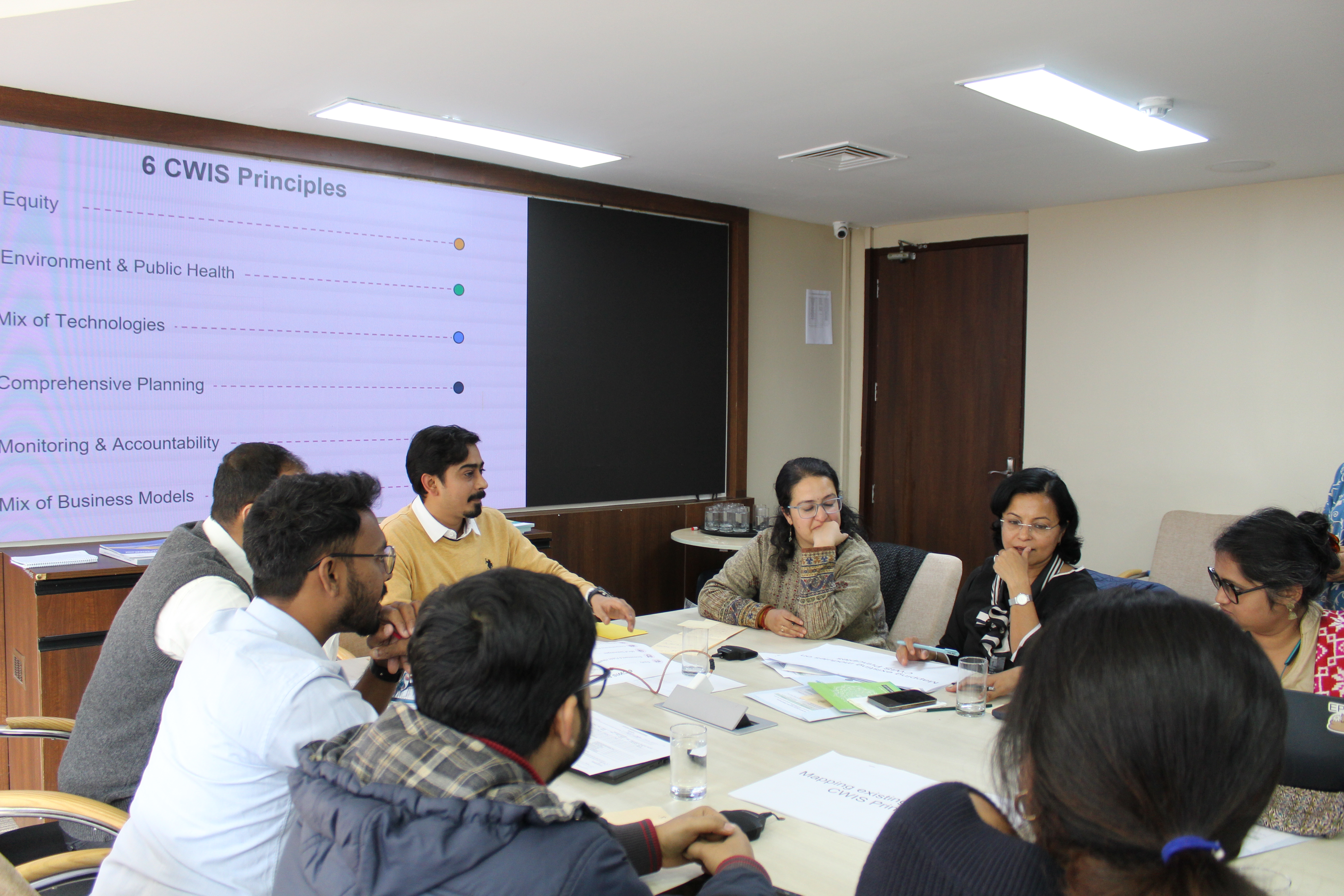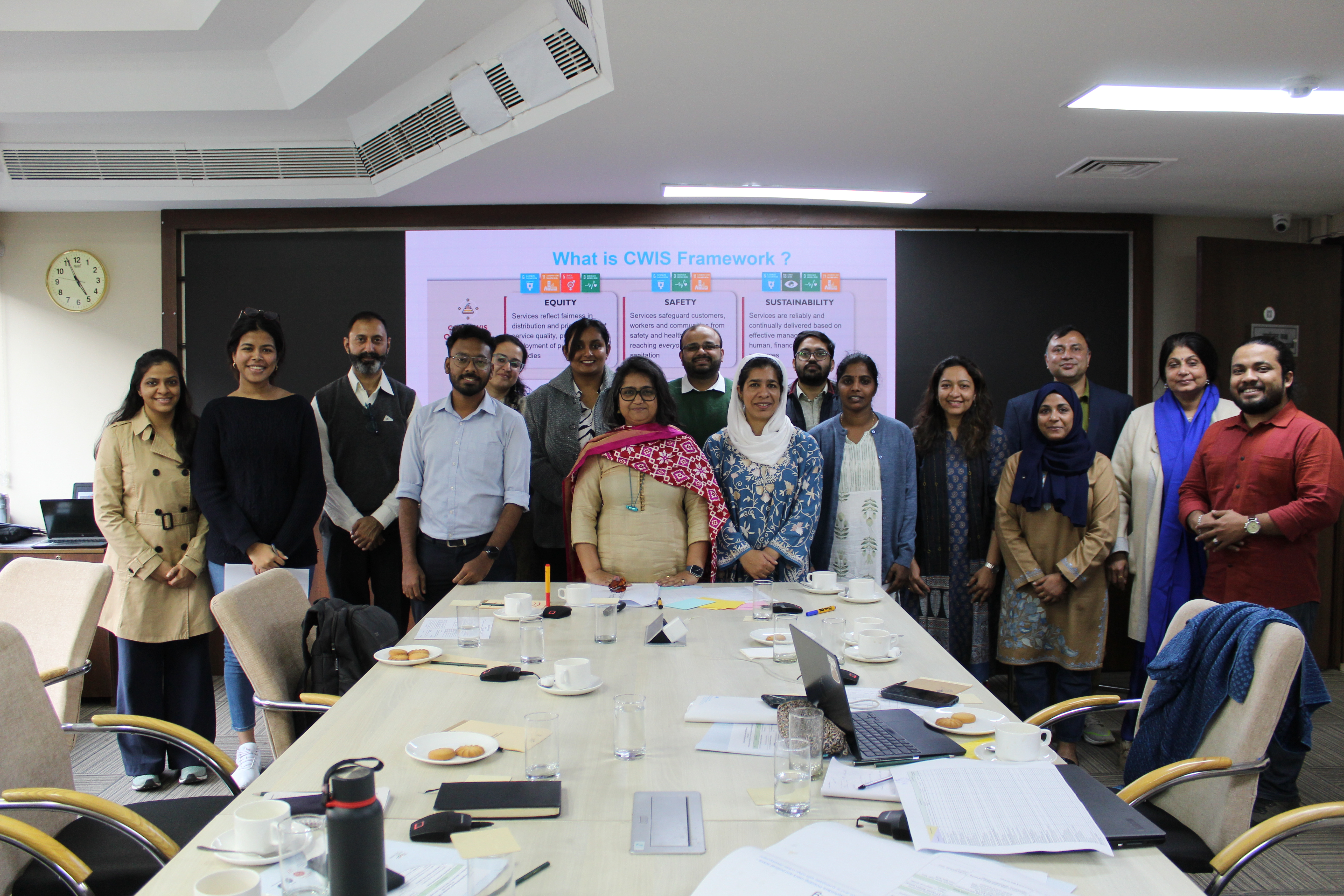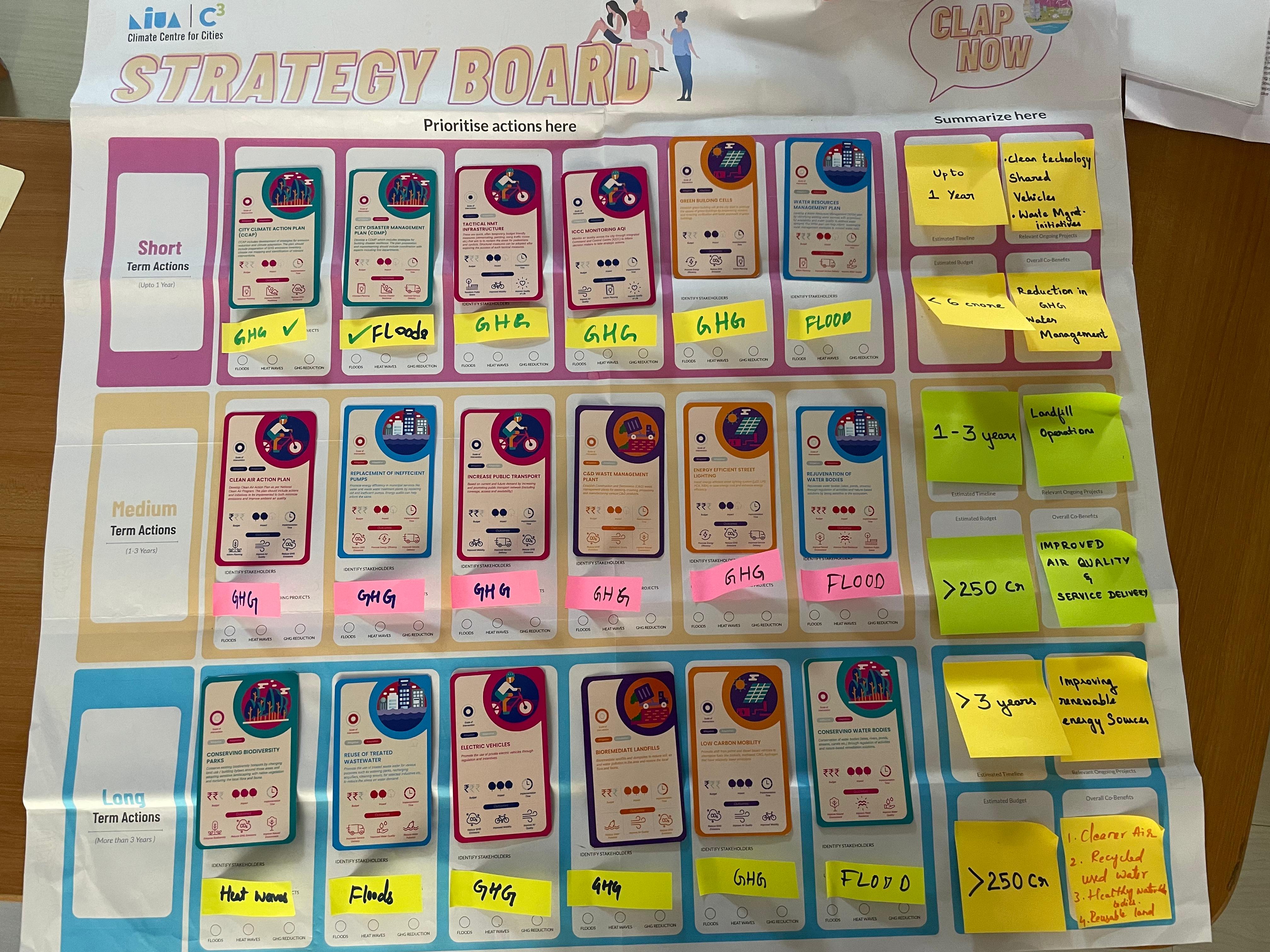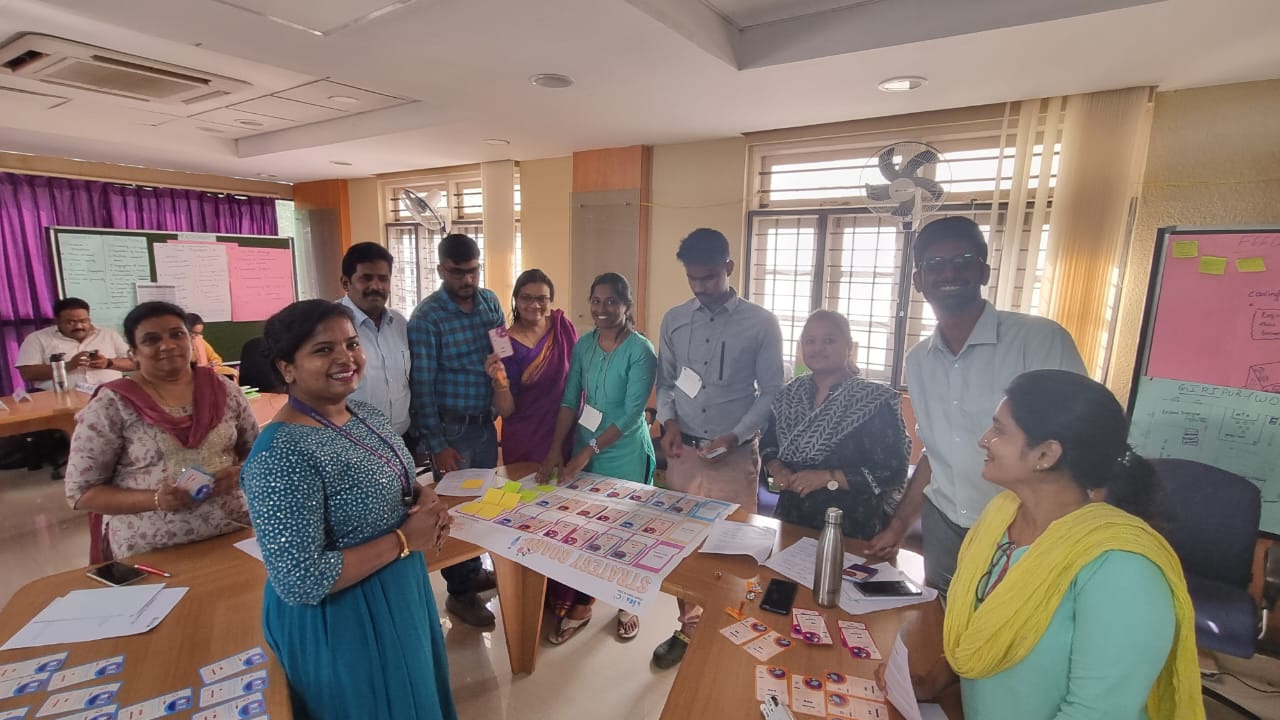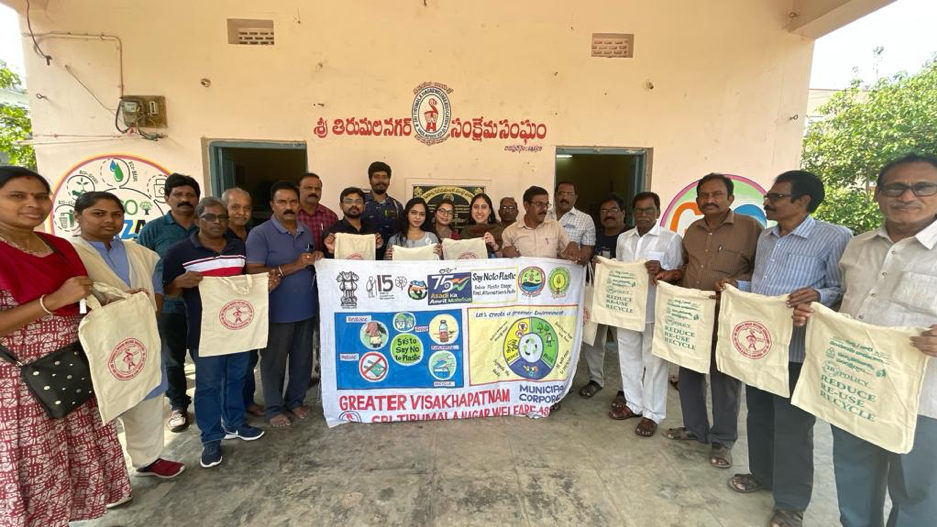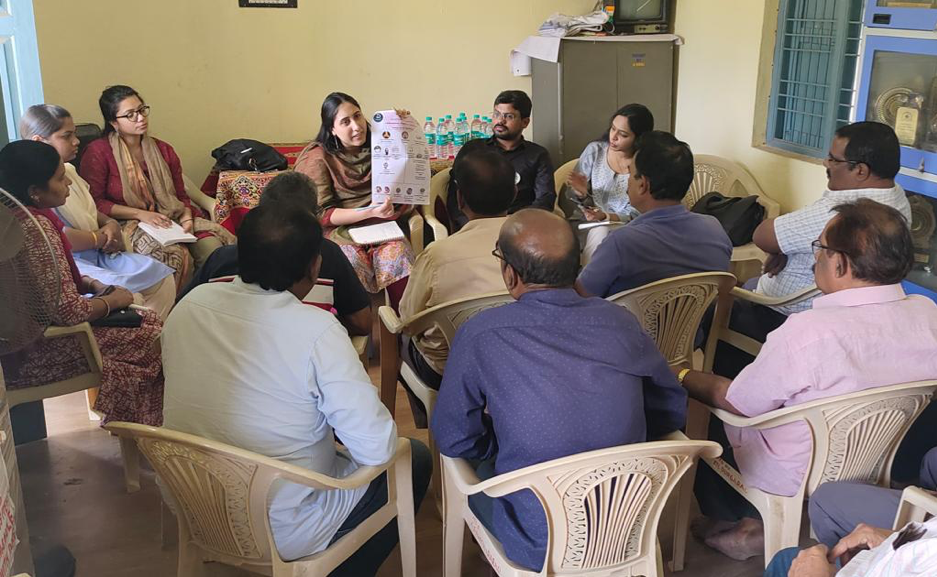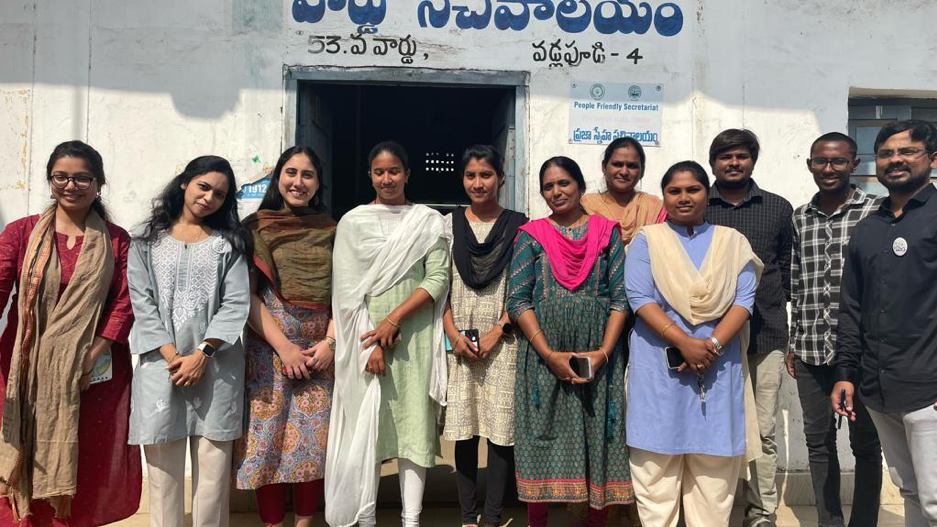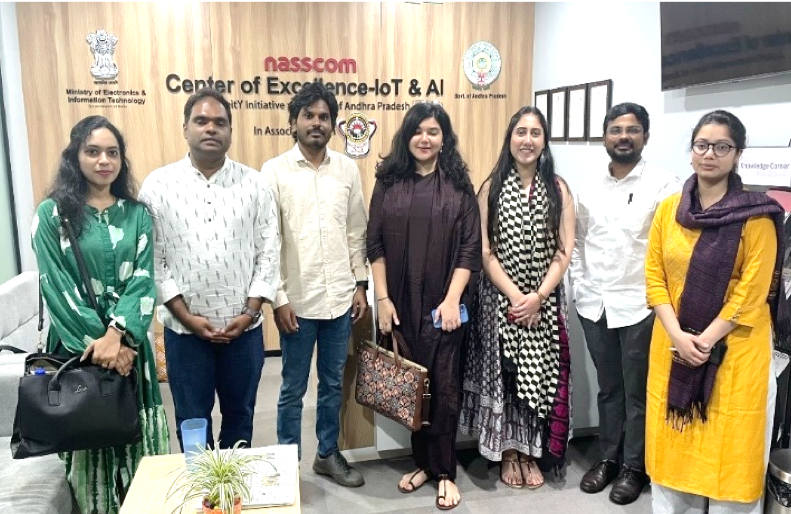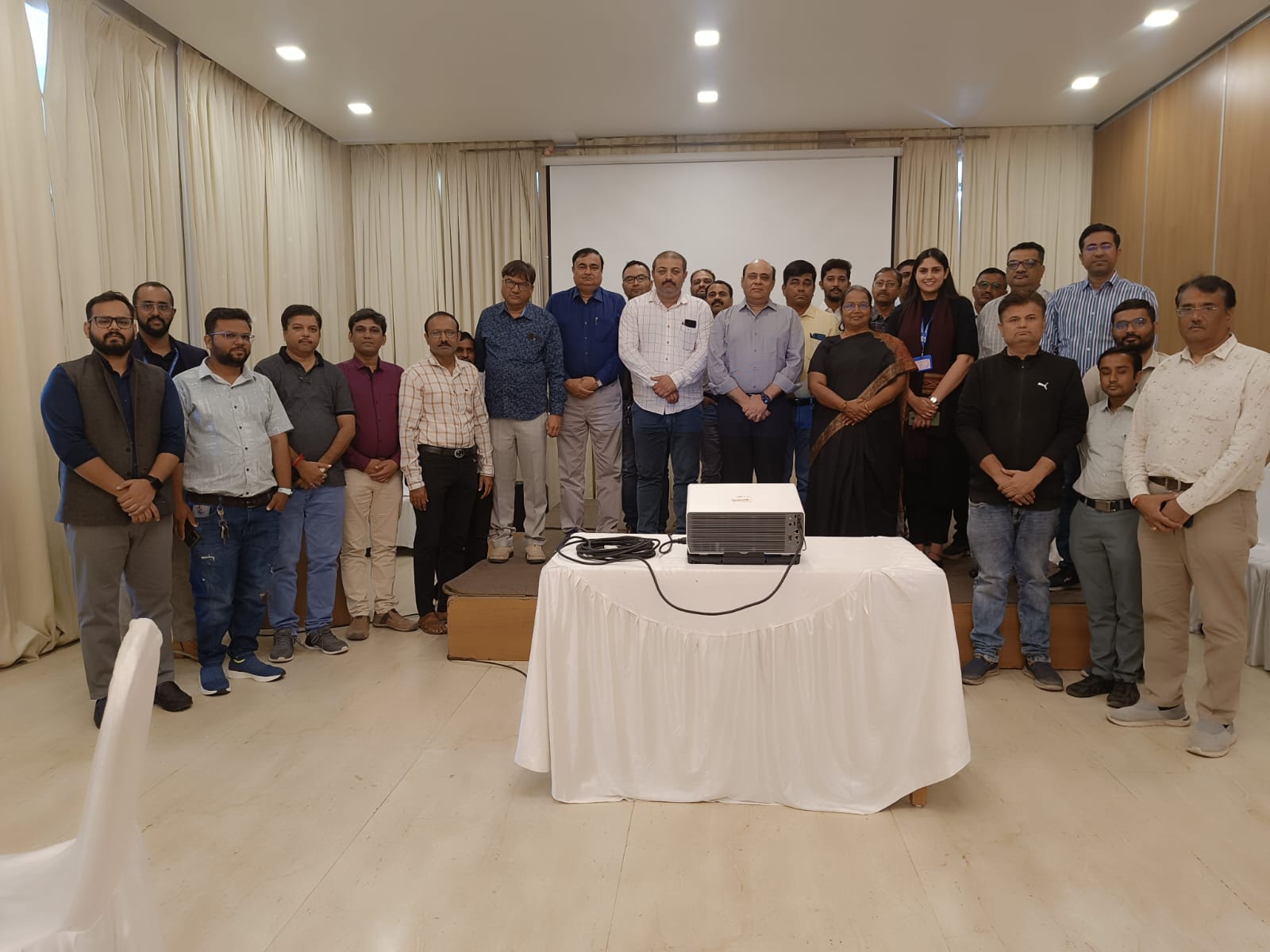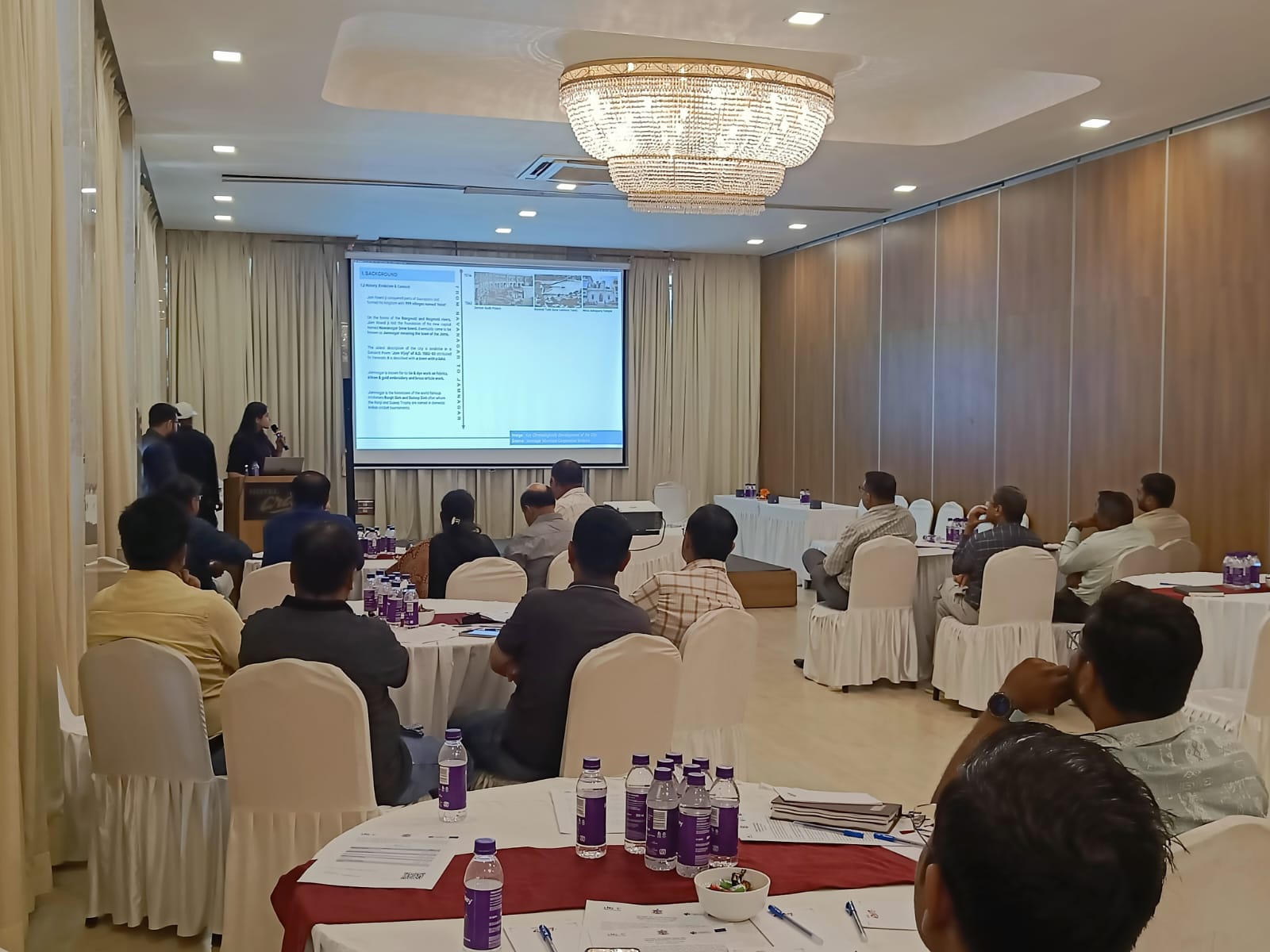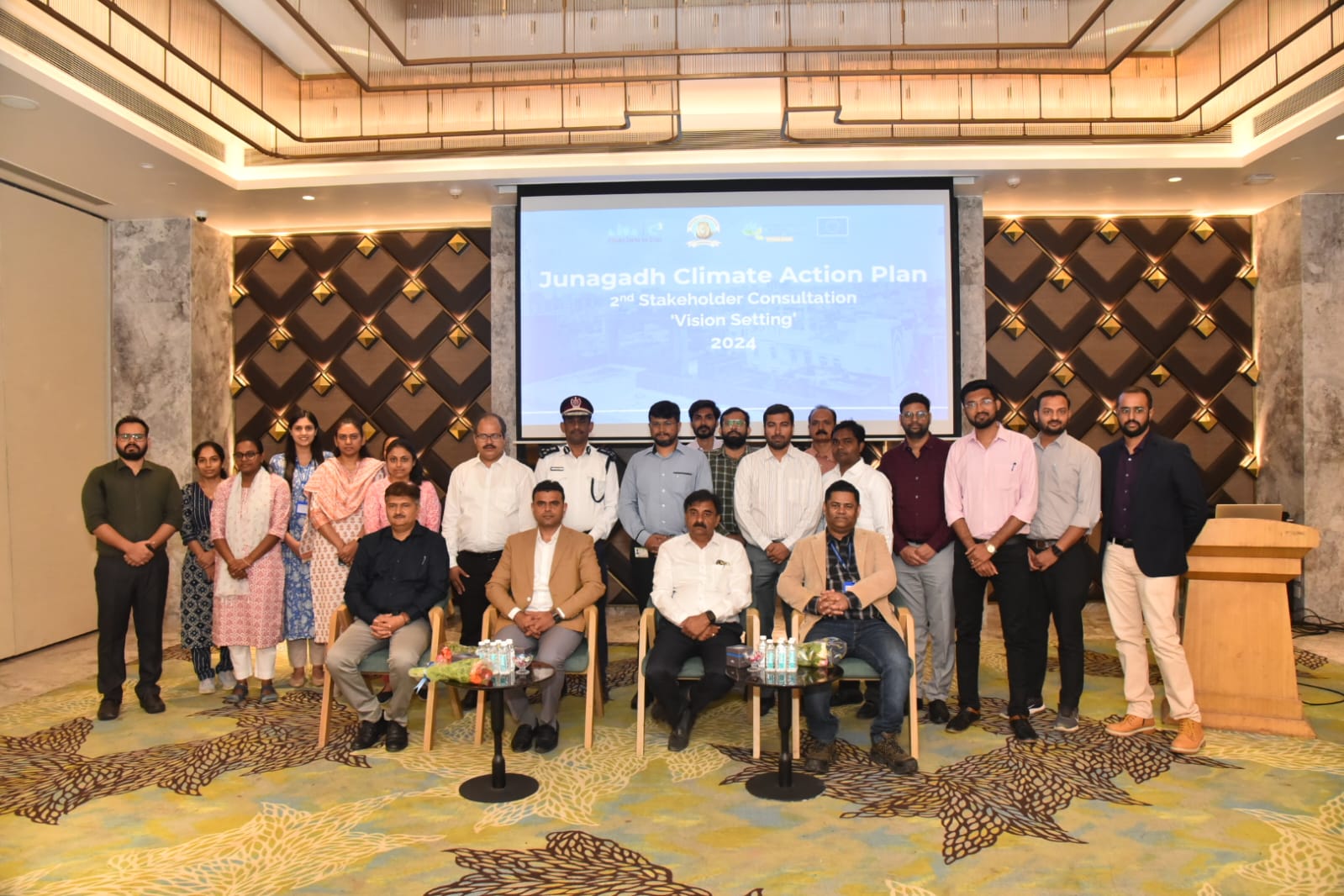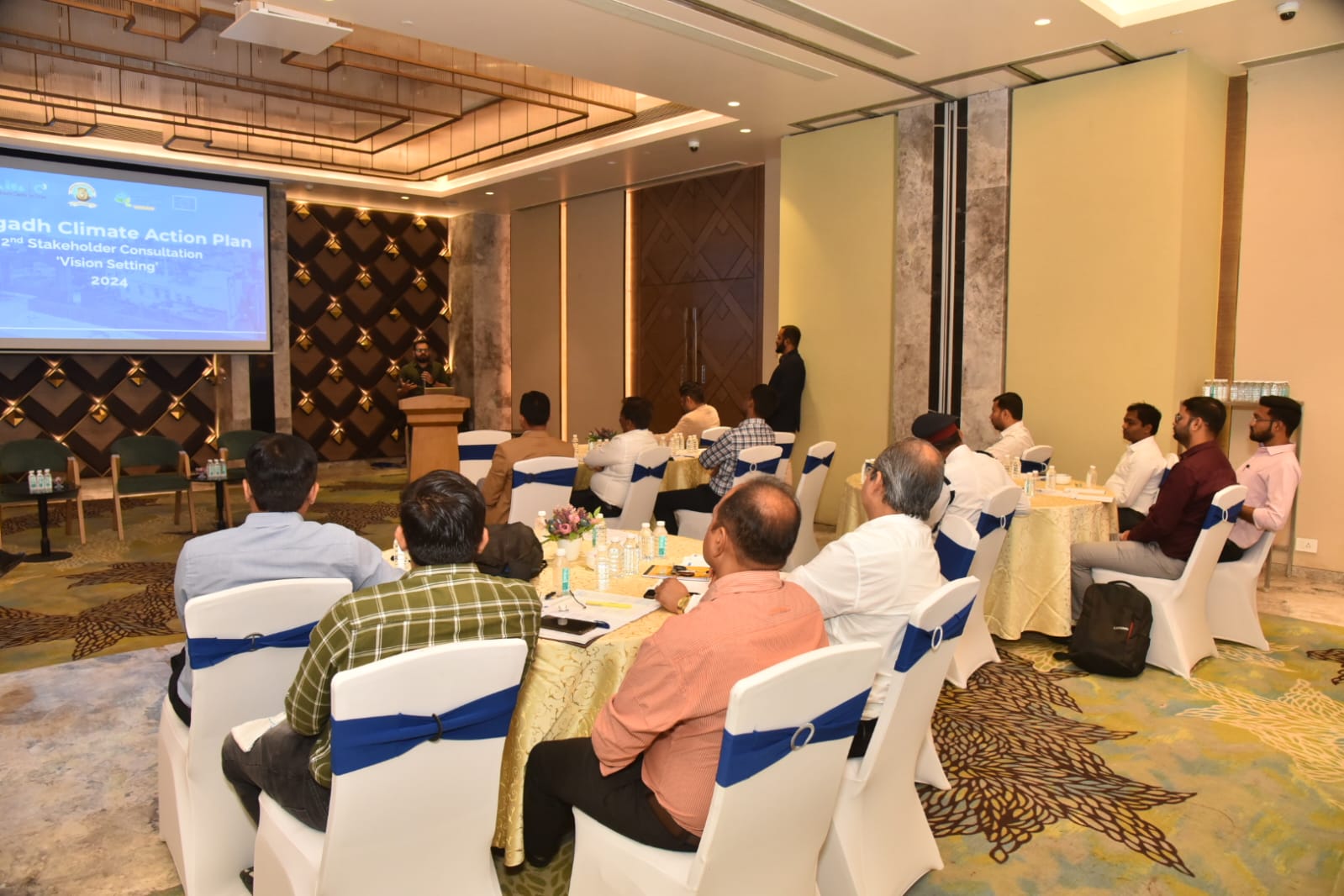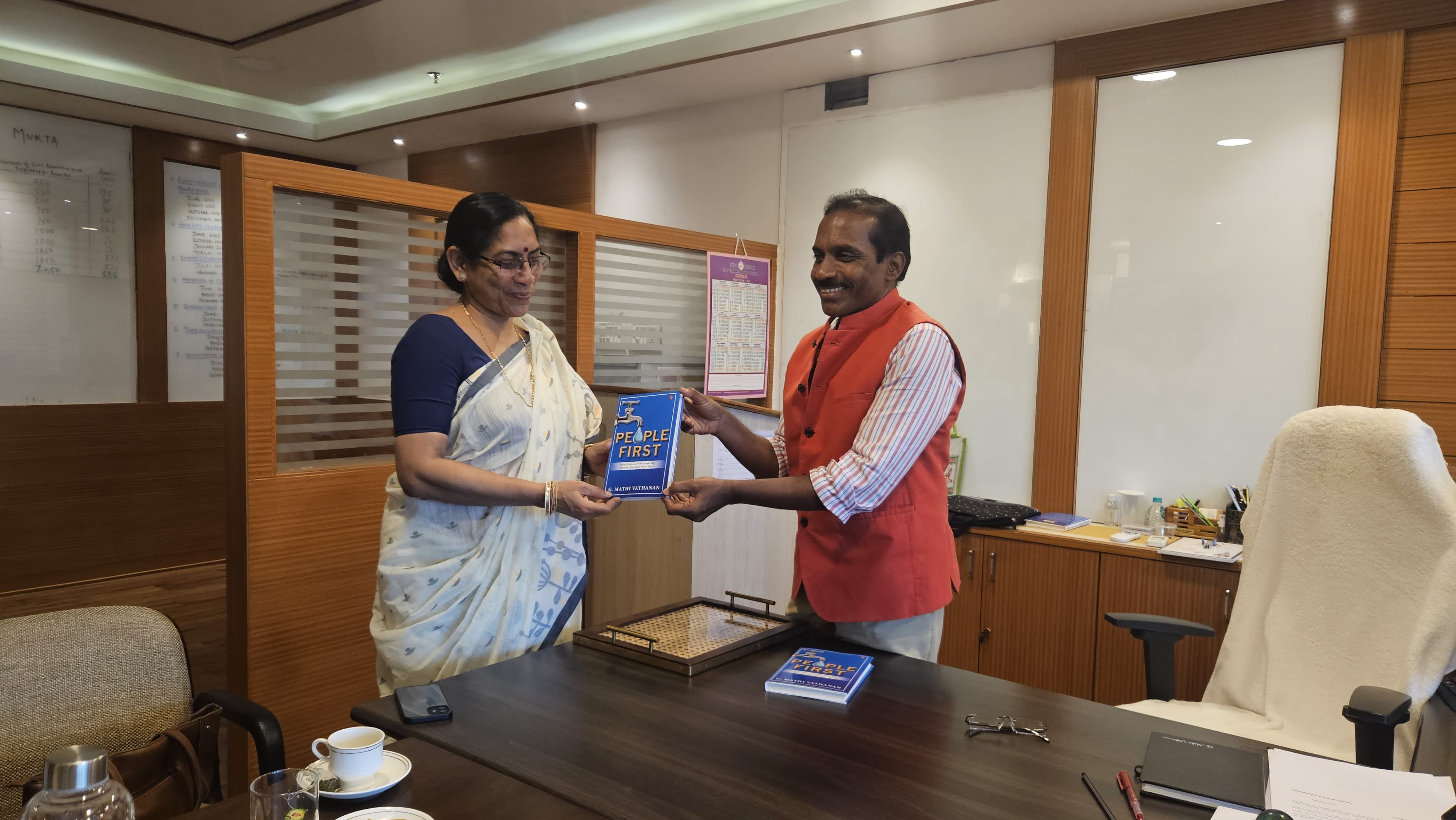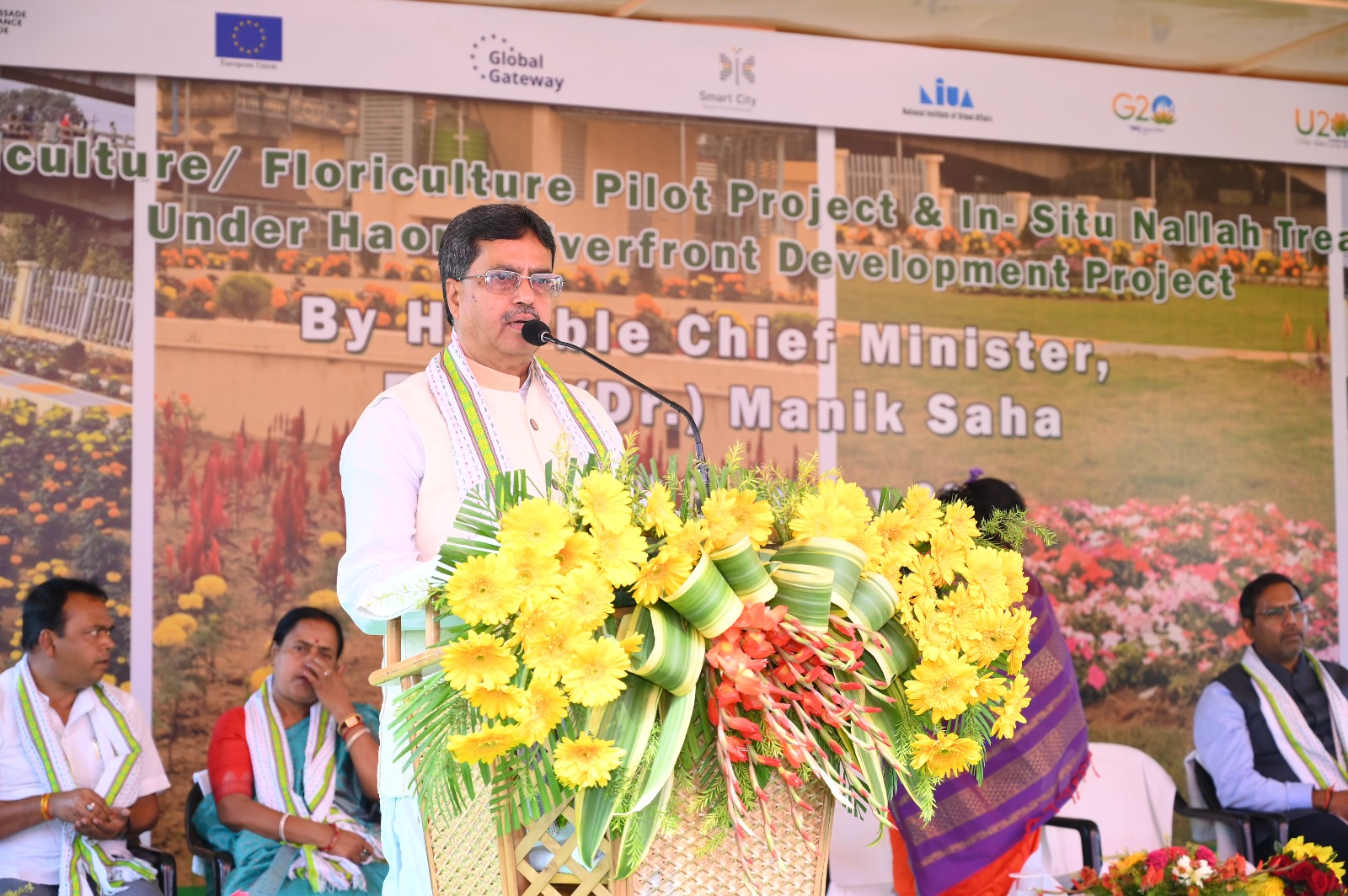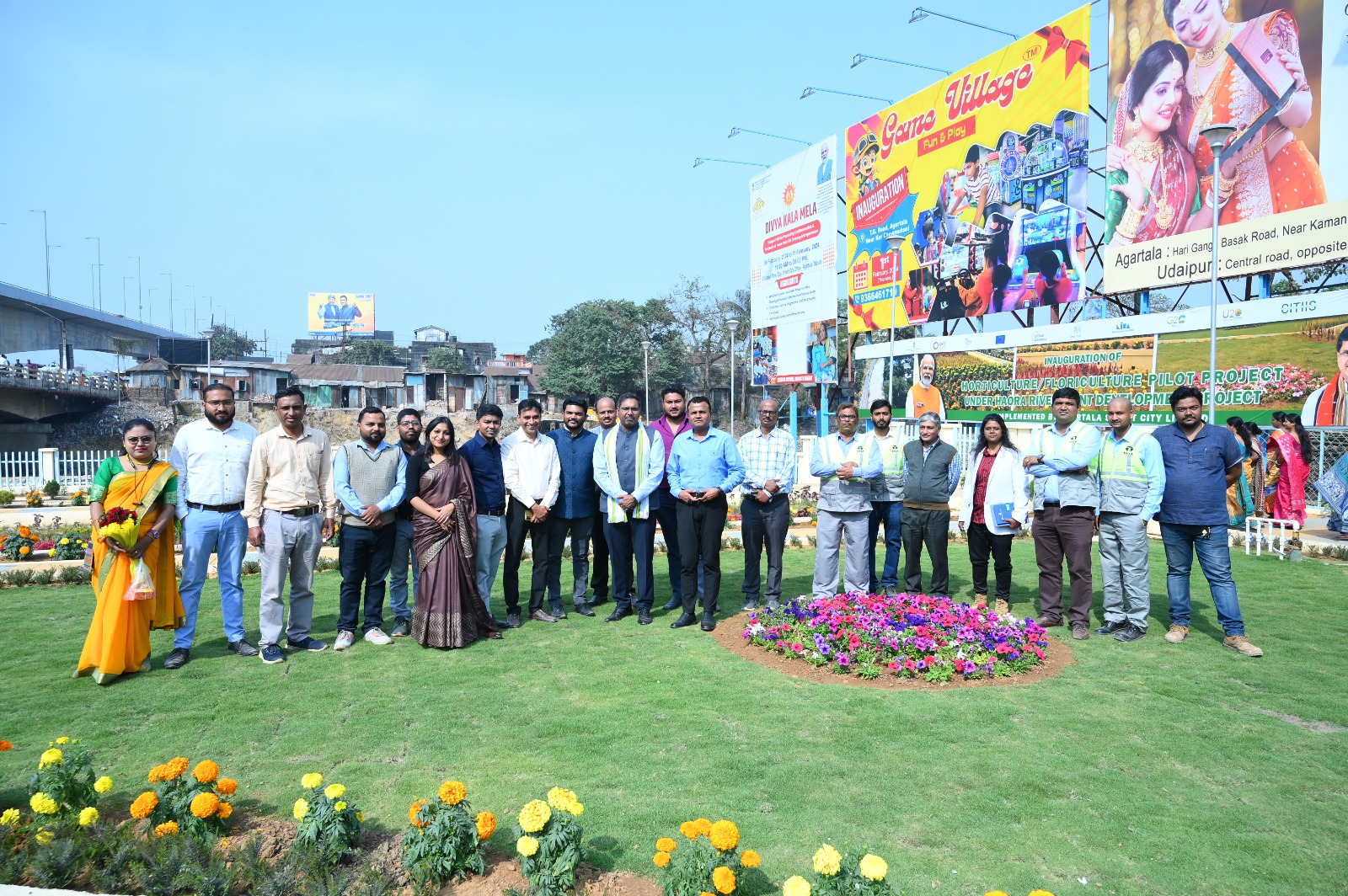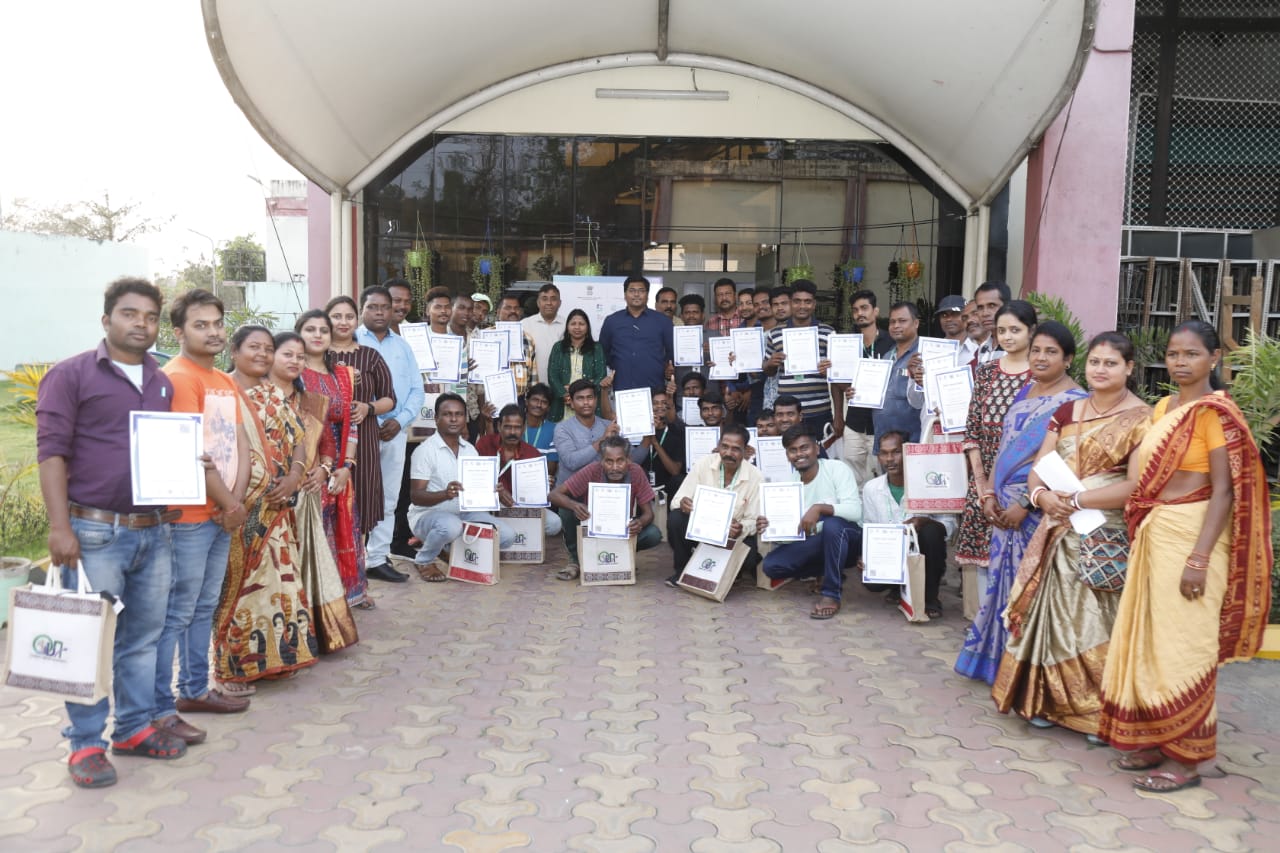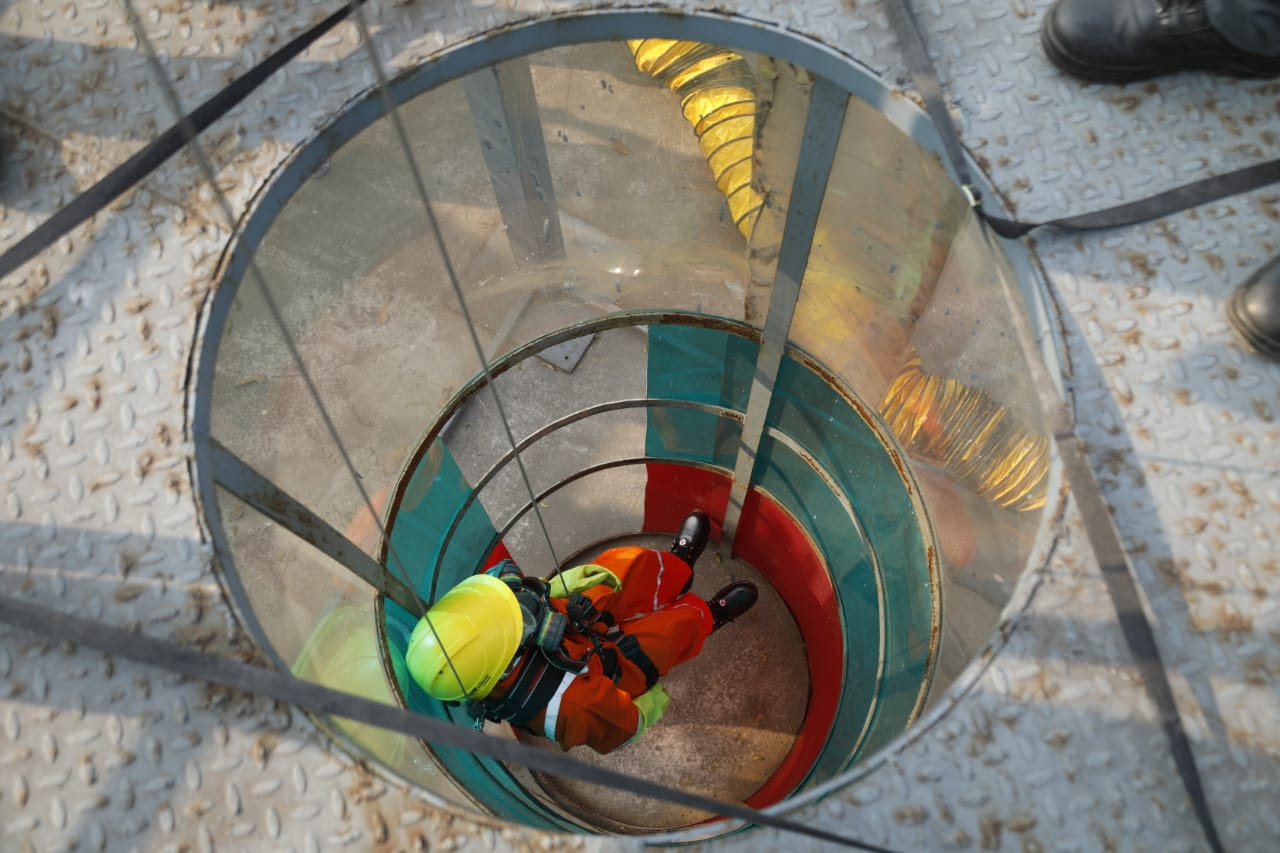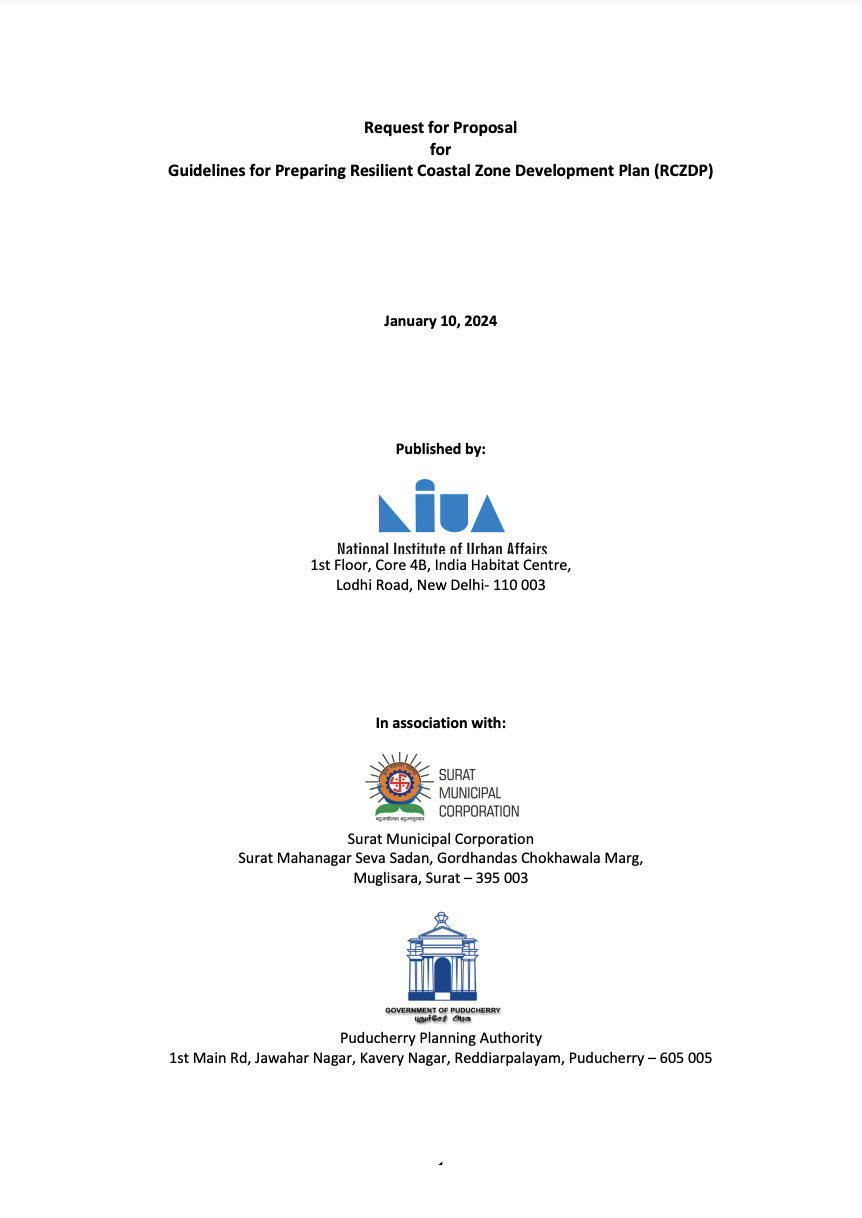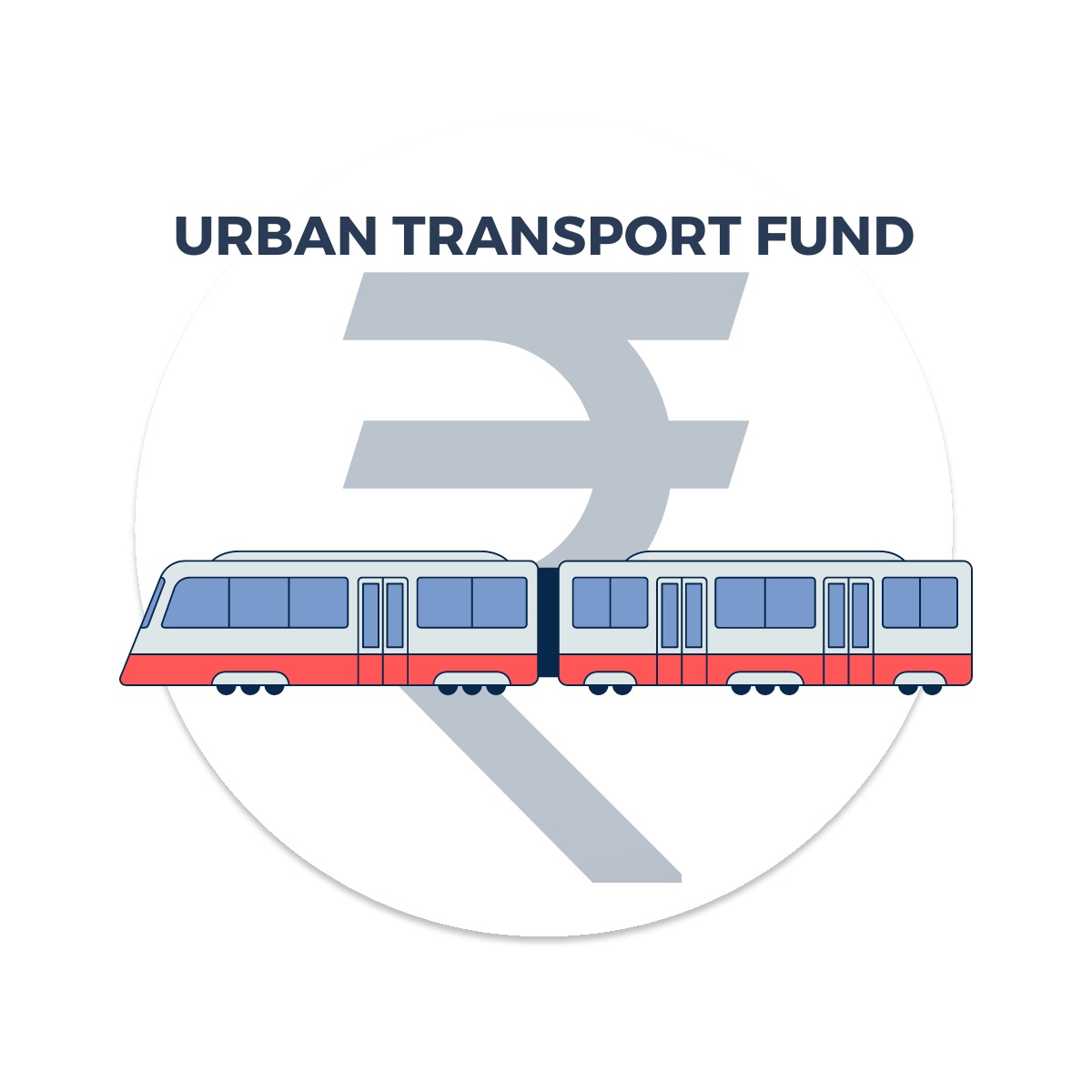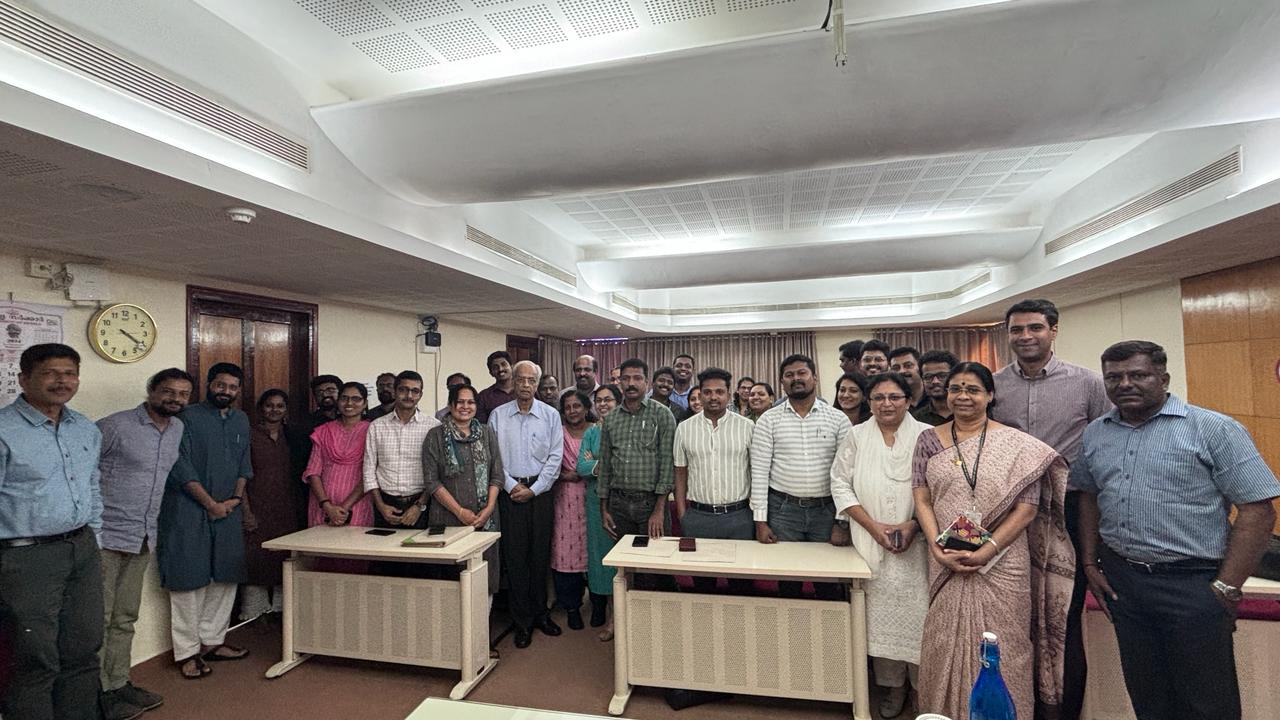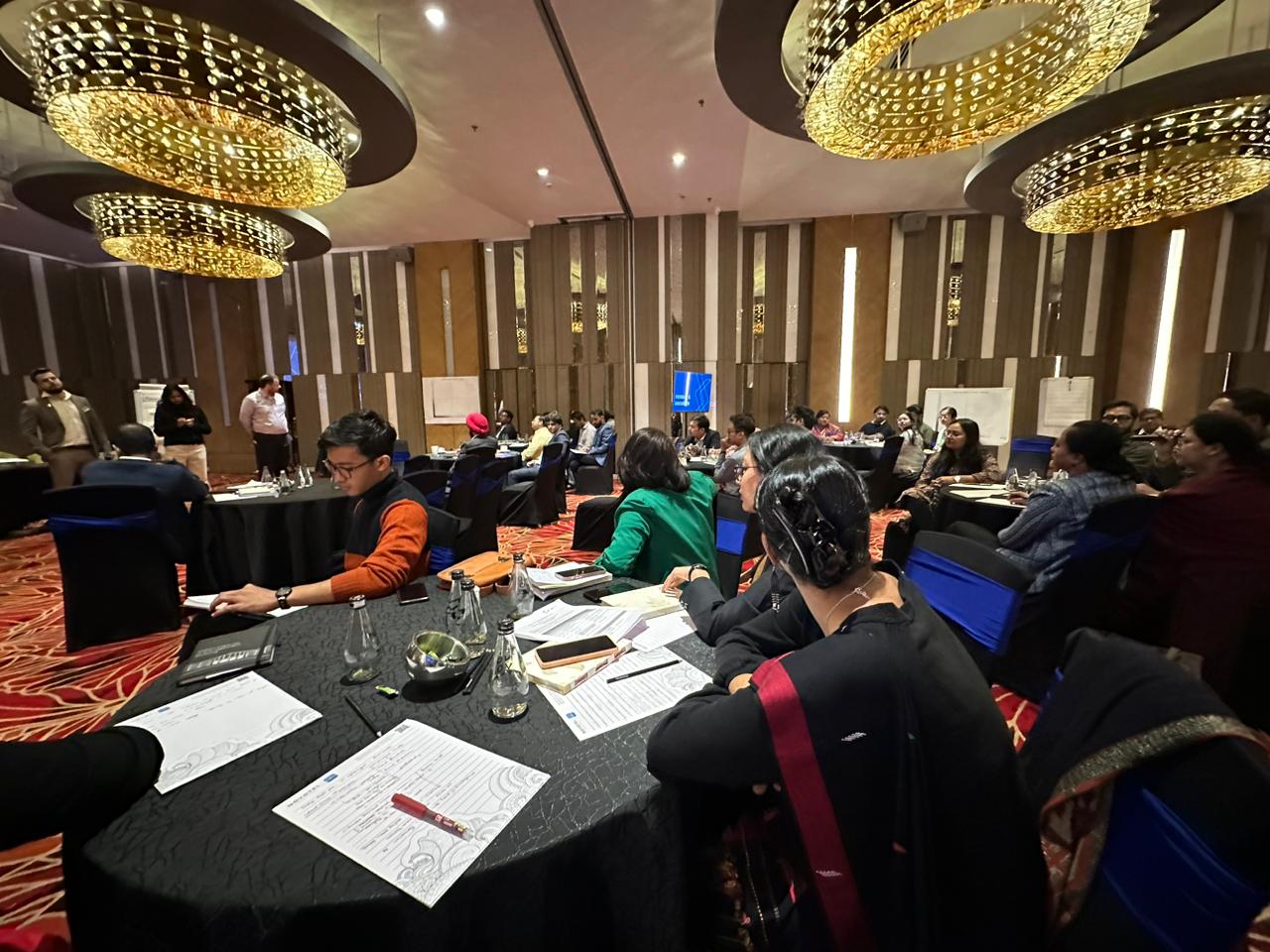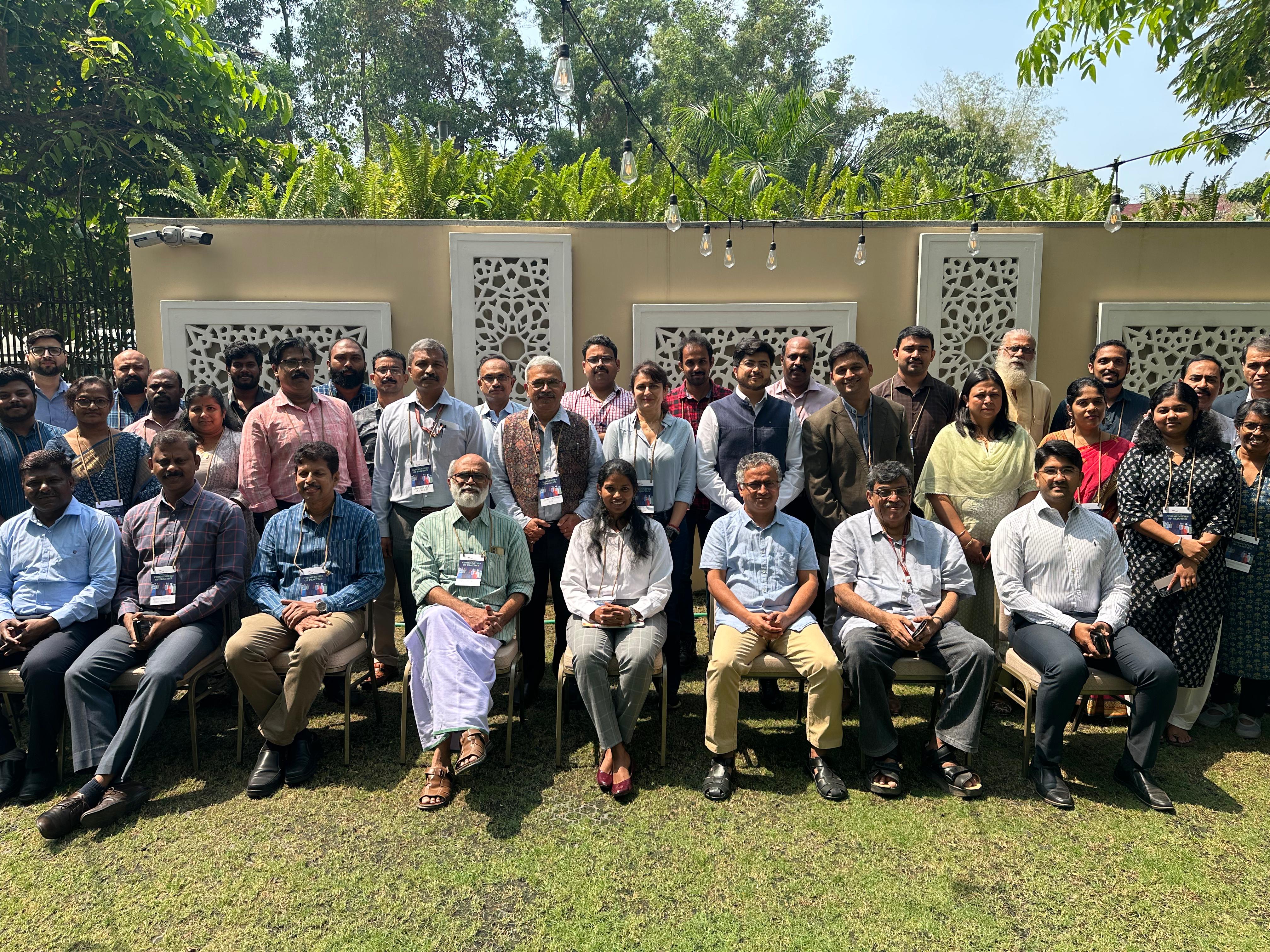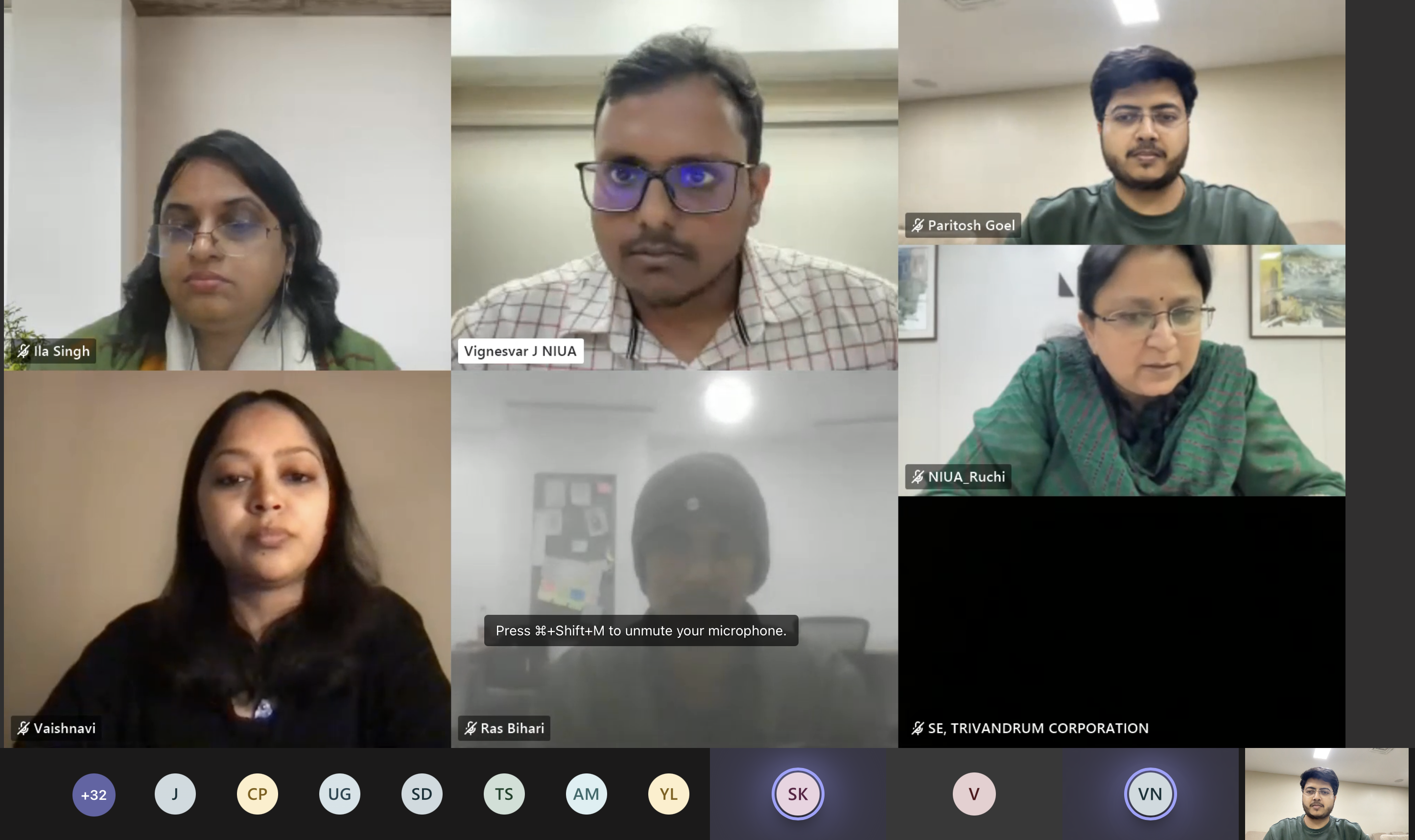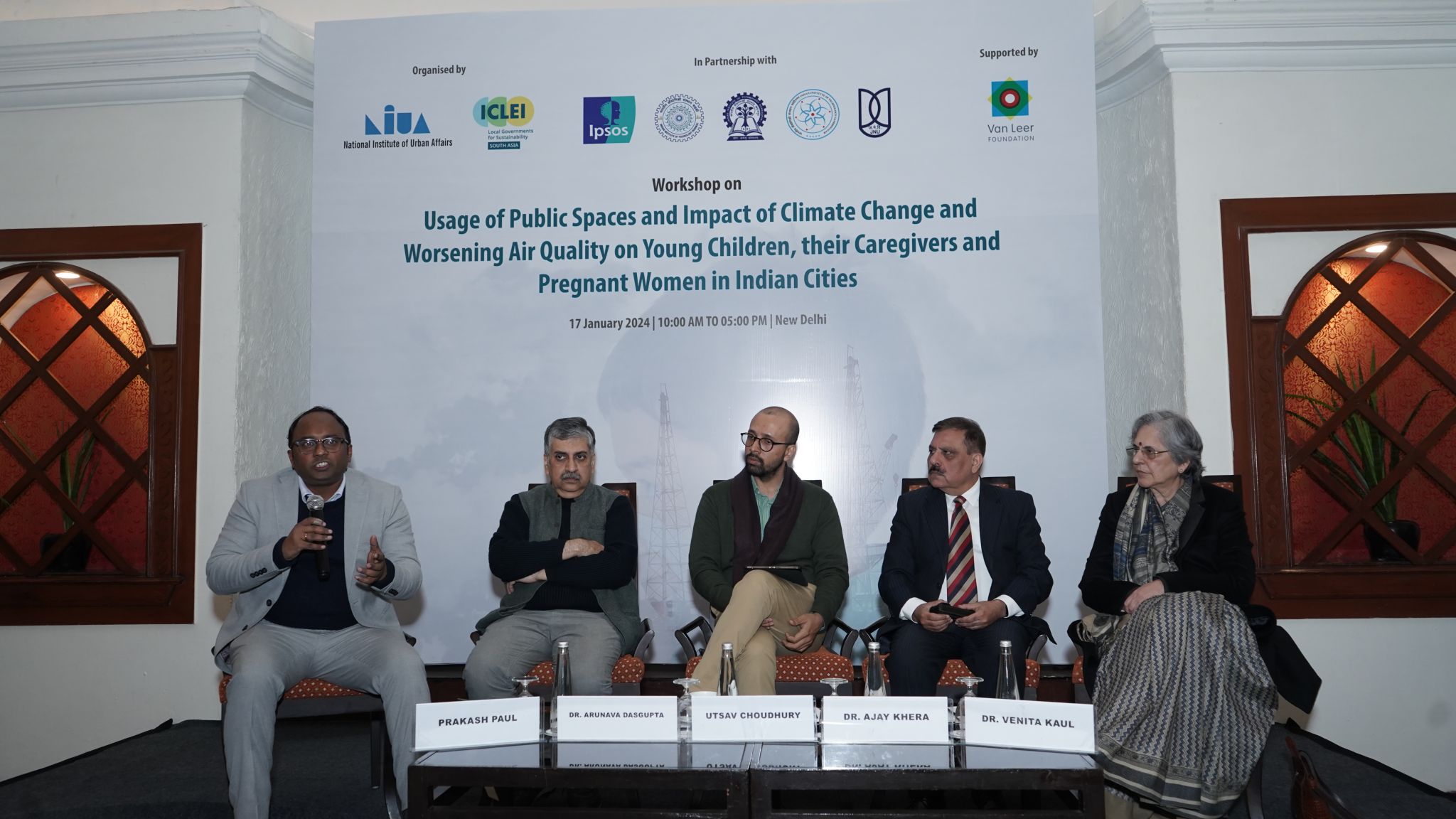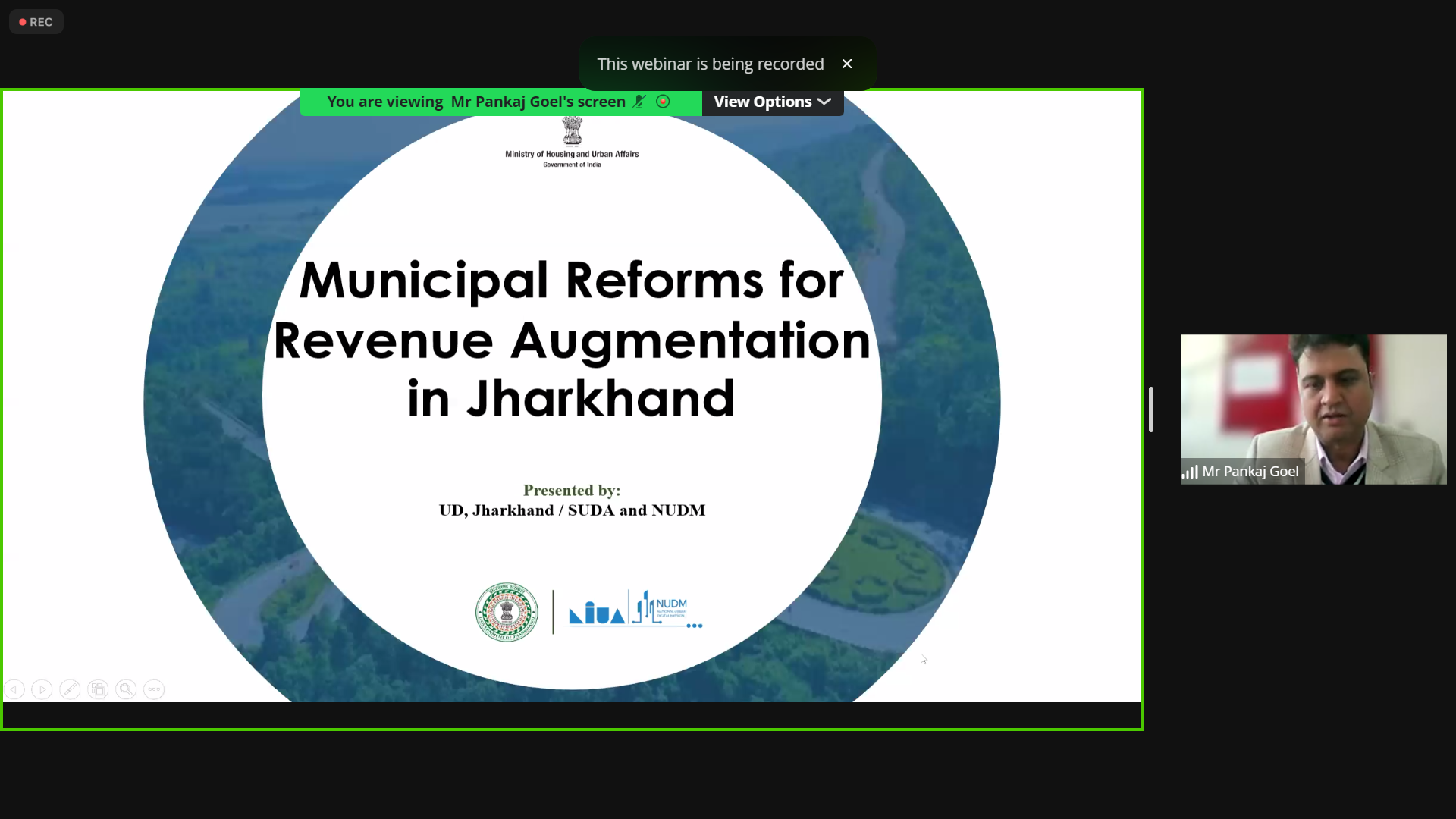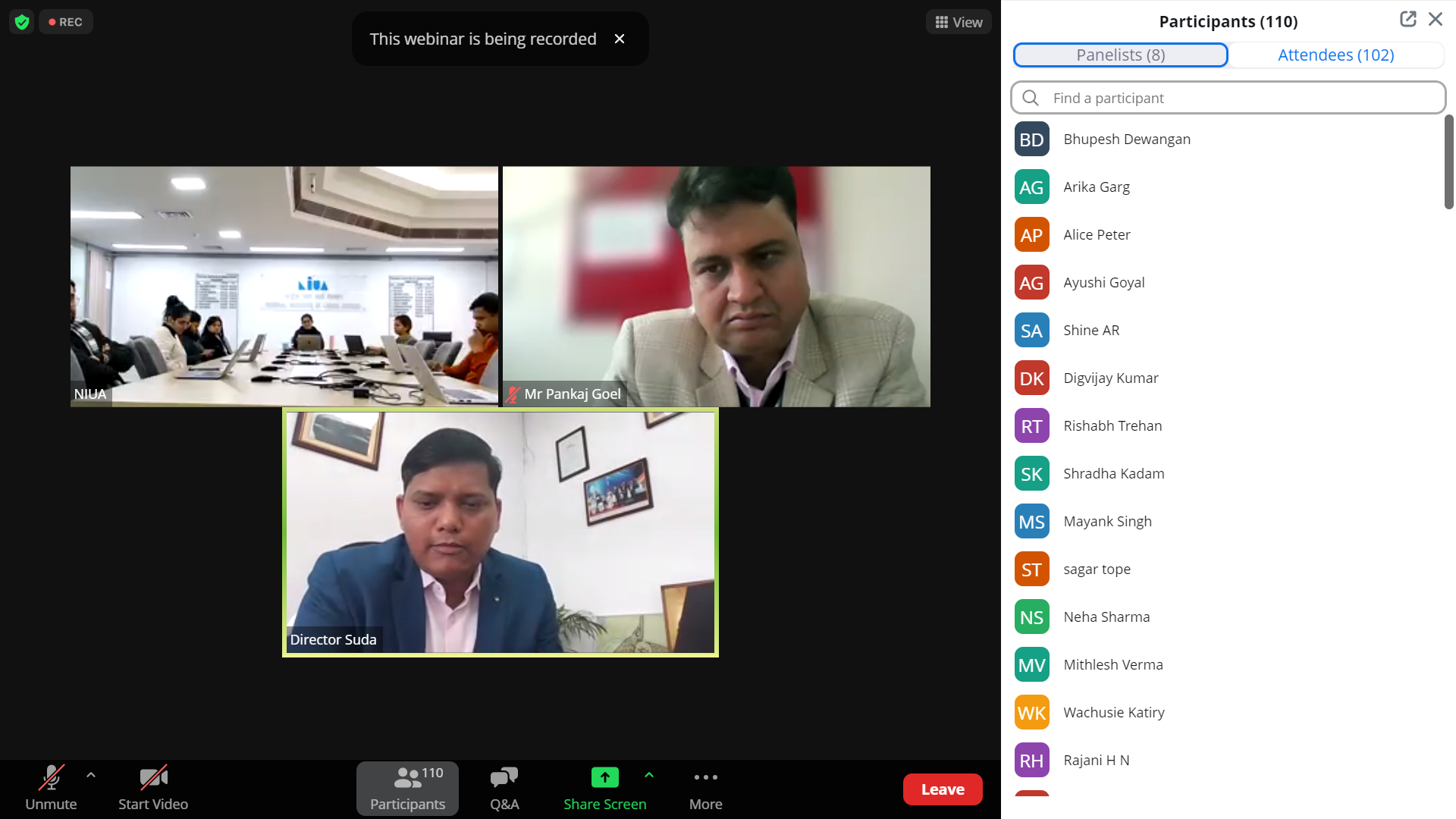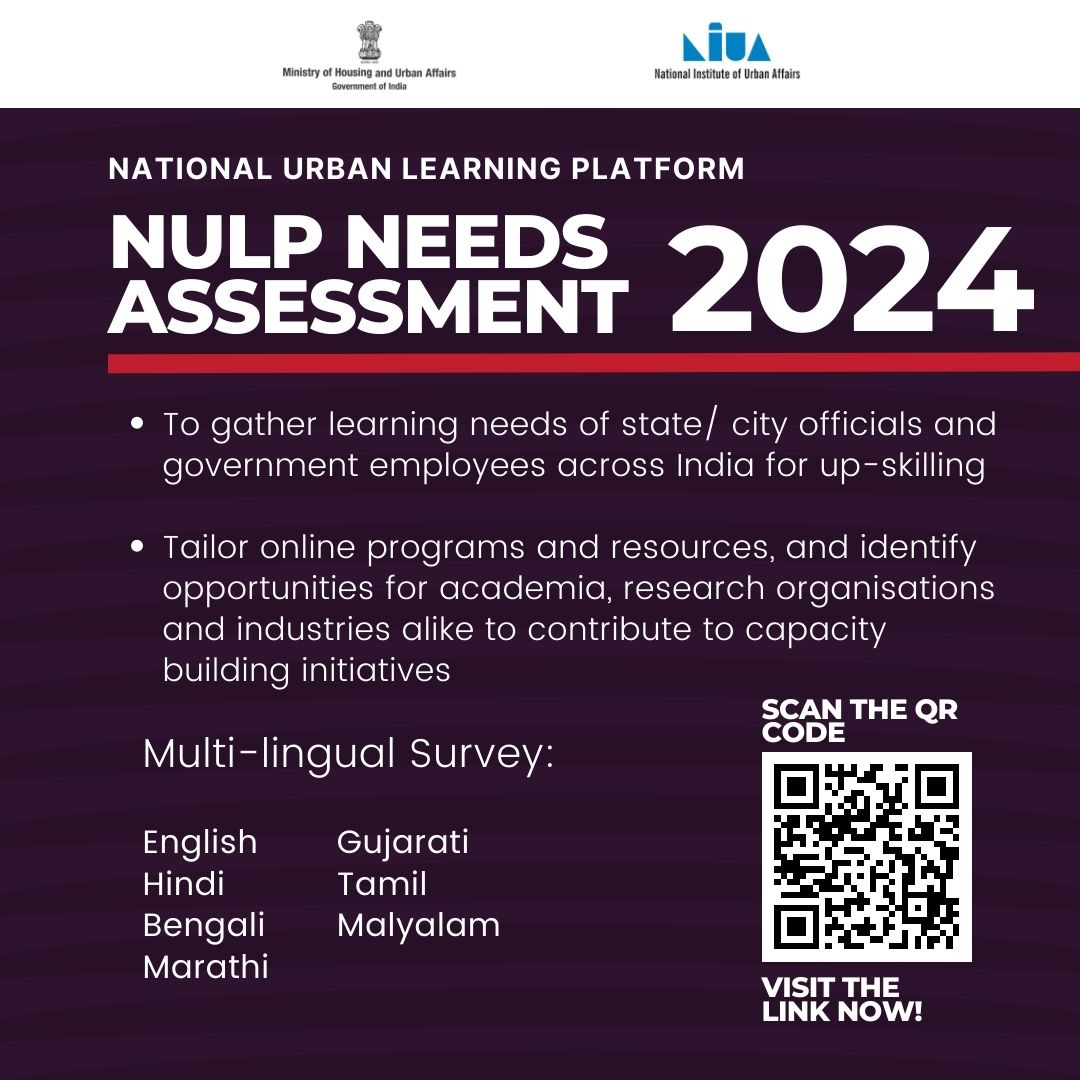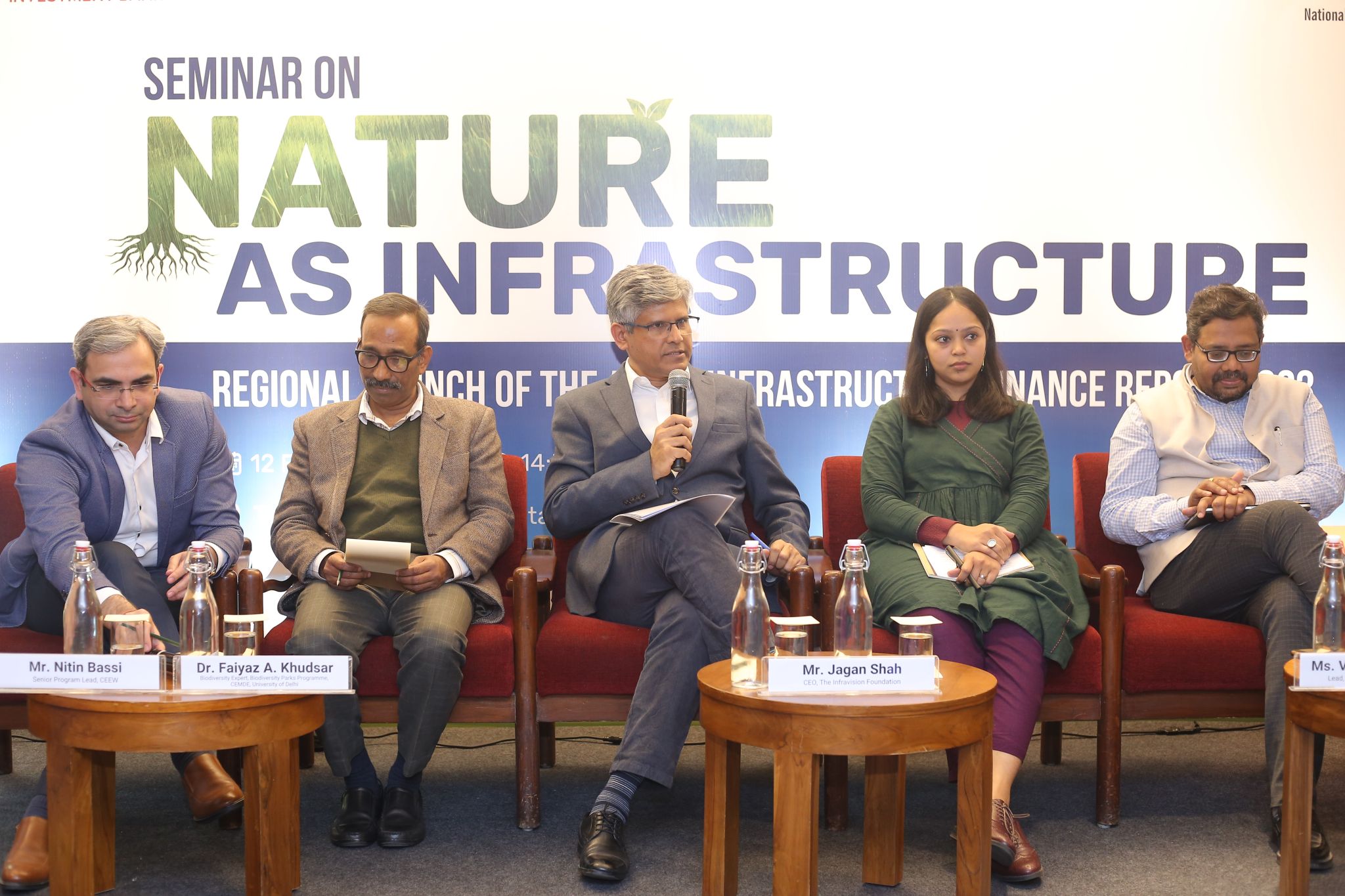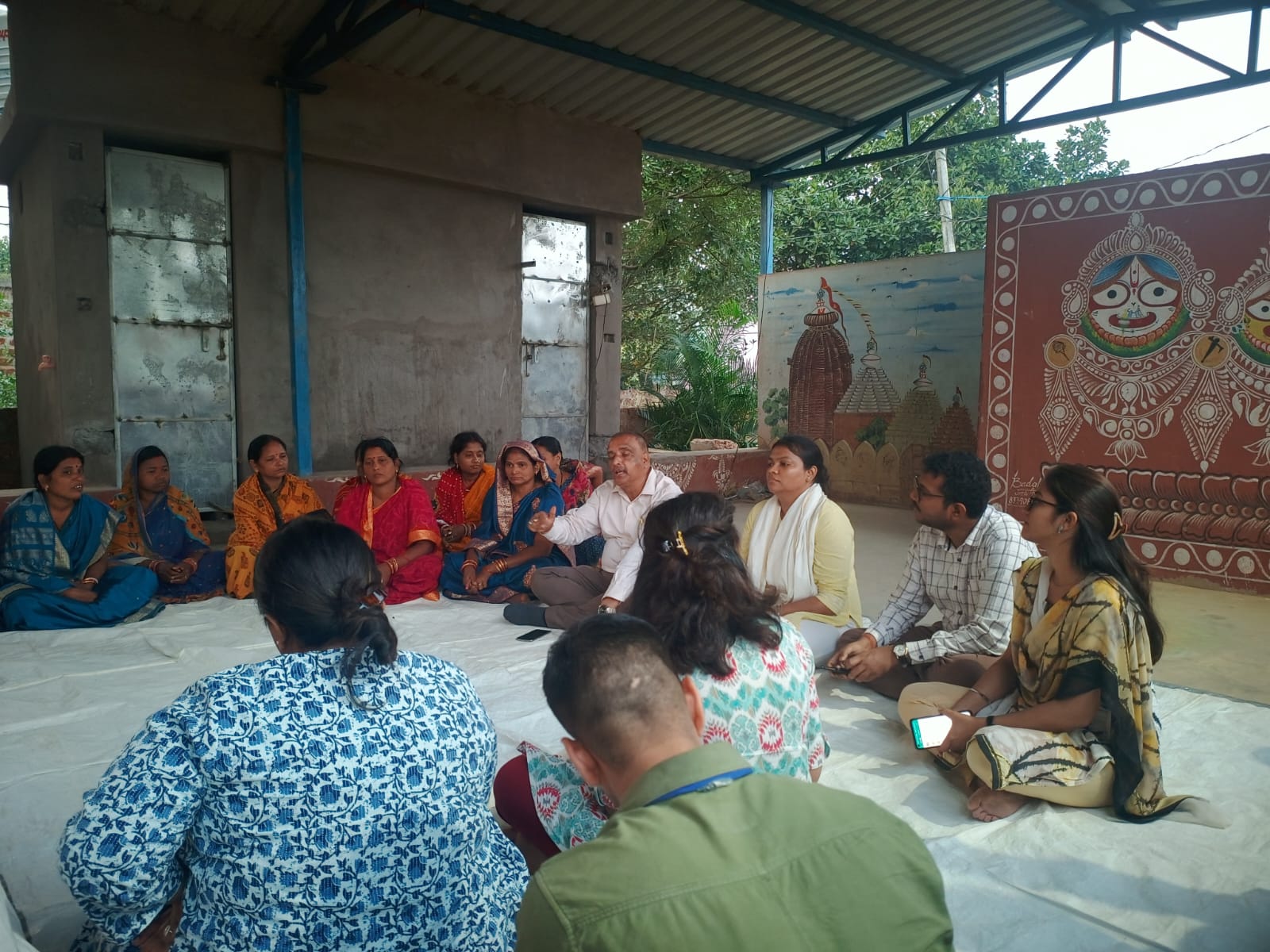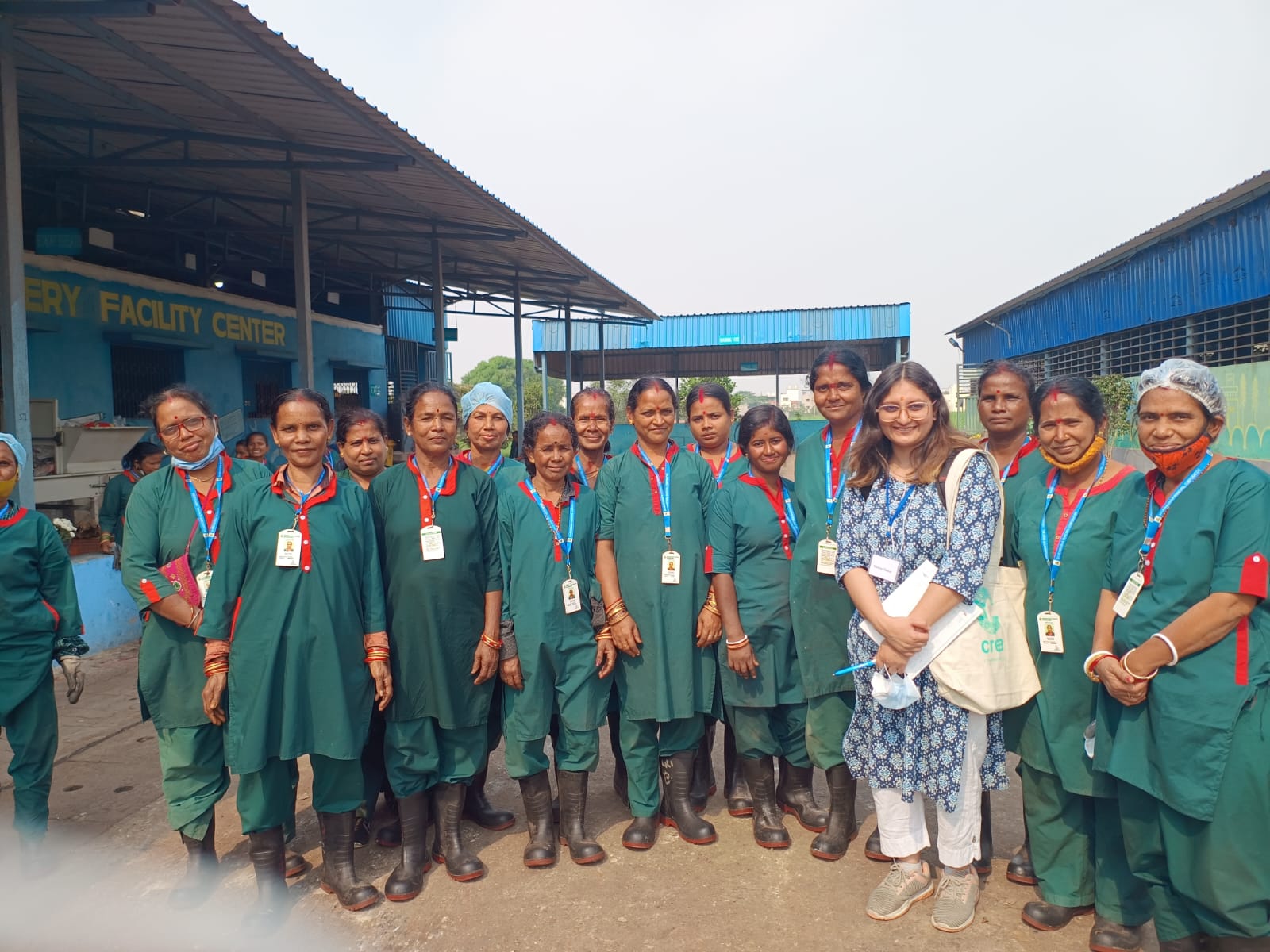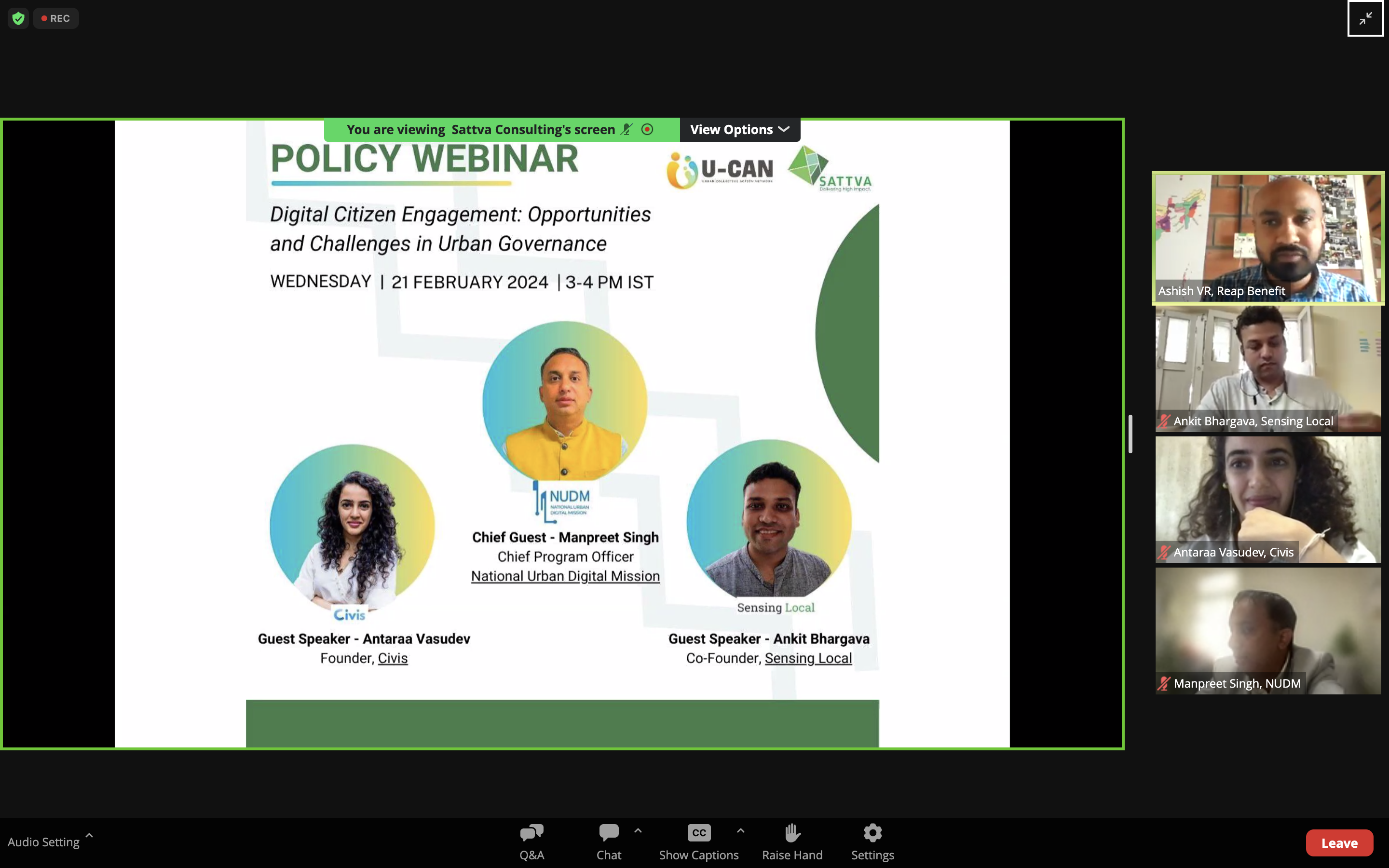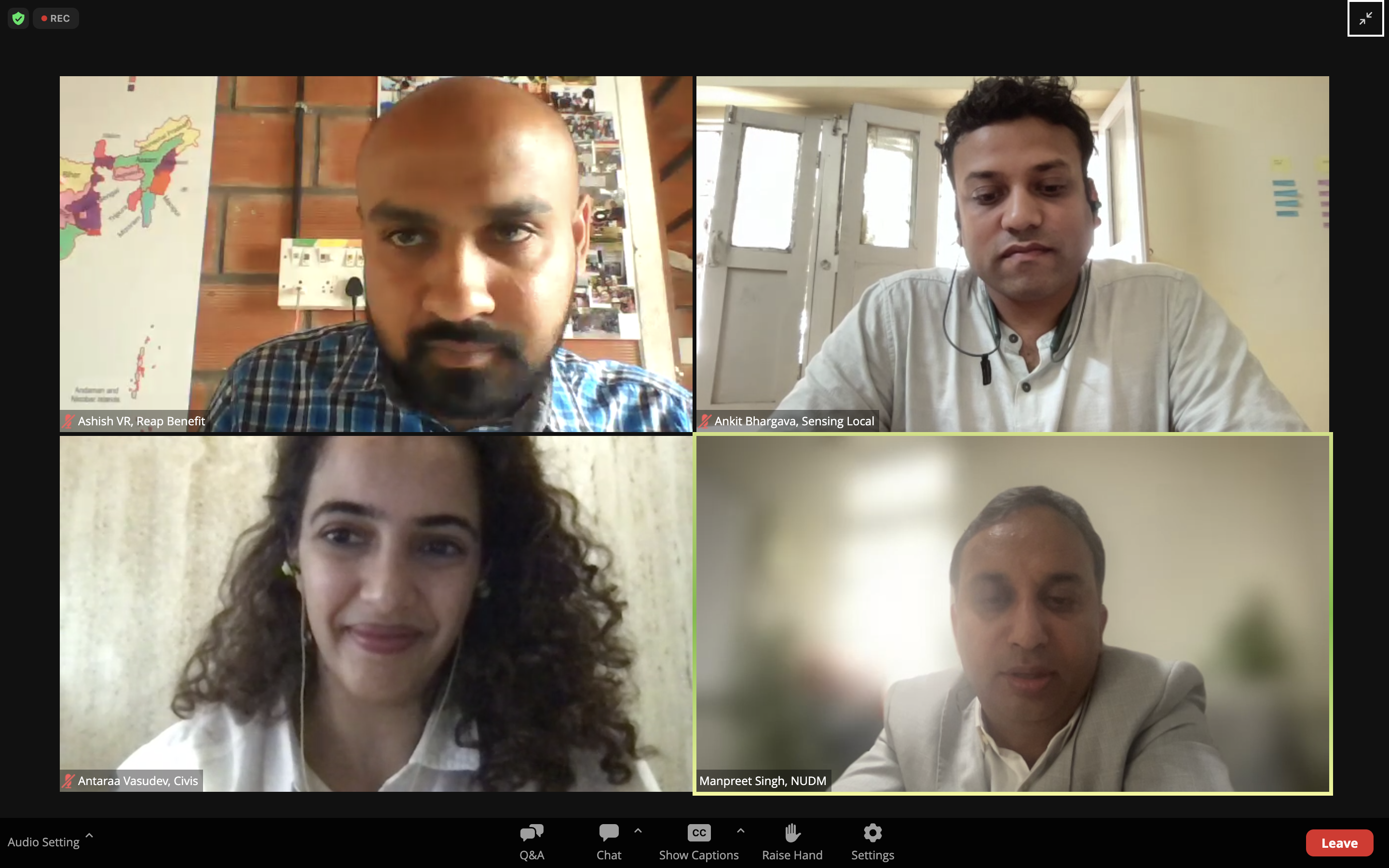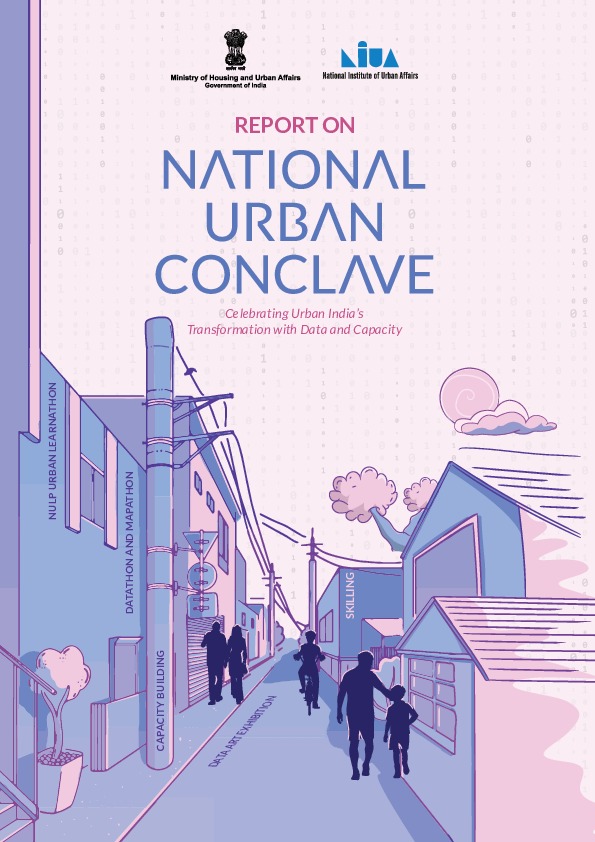
Issue - 18
March 2024
Monthly
Spotlight
Climate Change - Nature Based Solutions (NBS)
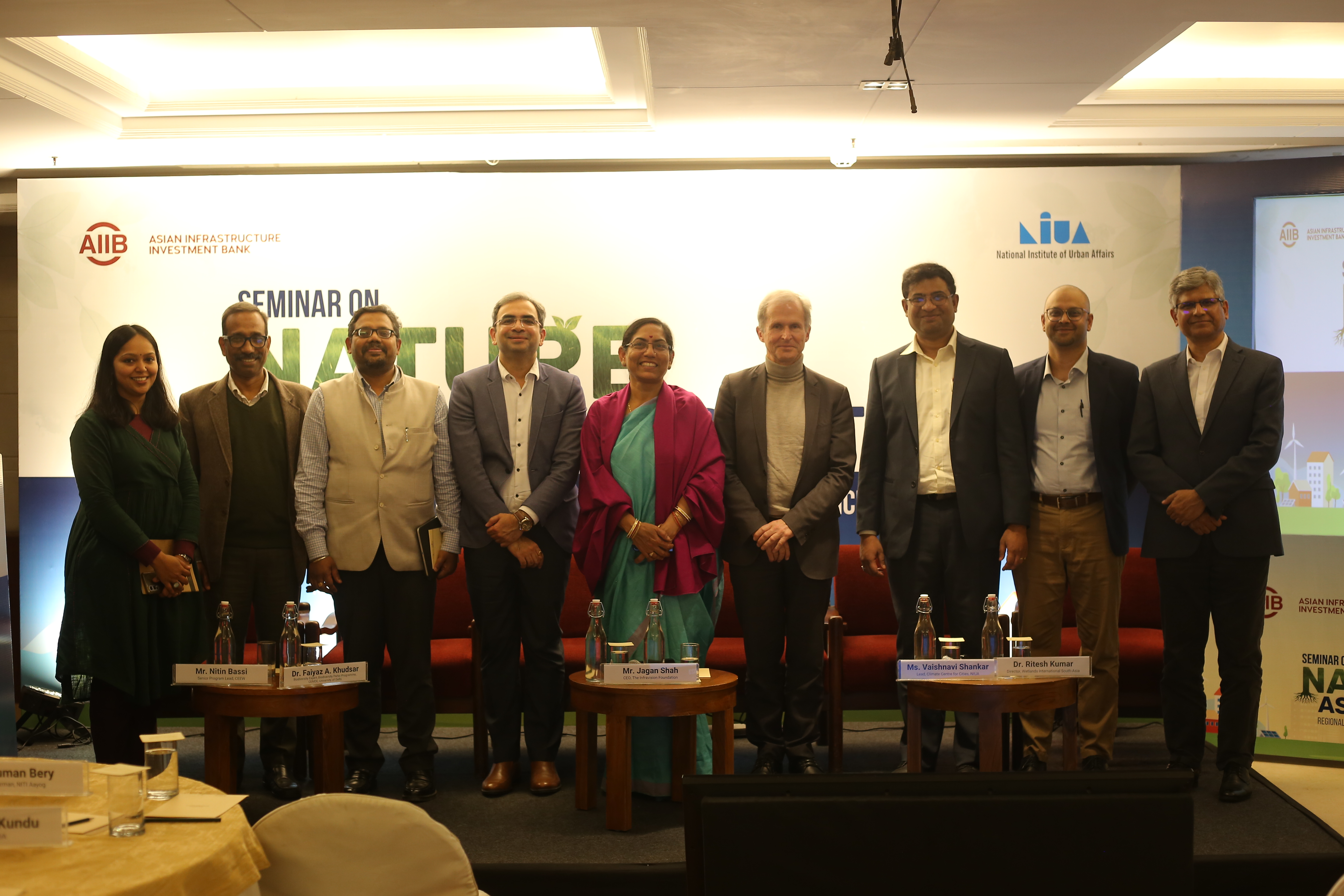
#Nature as #infrastructure can transform development. Building nature as an asset class needs an understanding of the value of nature, which requires expanding various tools and financial instruments.
Within this context, the Asian Infrastructure Investment Bank (AIIB) and NIUA organised a seminar titled ‘Nature as Infrastructure’ on February 12th, 2024, at the India Habitat Centre in New Delhi. The event featured the regional launch of the Asian Infrastructure Finance Report 2023 and a dynamic panel discussion with distinguished experts.
The report highlights accurately valuing nature - at the macro level by internalising the role of natural capital in growth & at the micro level by considering the huge potential of #naturebasedsolutions. It discusses better designing of grey infrastructure (ex. wildlife highway crossings, green urban spaces, restoring nature as offsets, etc.). It also examines project-level valuation tools (e.g., usage charges or permits, tax on damages, etc.) & adaptive local regulations. Micro-level policies can thus support the flow of finance to nature through KPI linked bonds, policy-based lending, debt-for-nature swaps, nature credit markets, etc. The AIIB's newly launched report focuses on nature based solutions (NBS) for infrastructure development, advocating for the seamless integration of natural elements with conventional infrastructure to boost both environmental and economic benefits.
MoU Signed with Aga Khan Agency for Habitat India to Build Climate Resilience
Climate Centre for Cities (C-Cube)
C-Cube at NIUA and the Aga Khan Agency for Habitat India signed a memorandum of understanding on 13 February 2024 to collaborate on addressing the intersecting challenges of urbanisation and climate change.
The collaboration uses both institutions' combined expertise and resources to develop innovative solutions, such as cool roof techniques, facilitate dialogues on ecosystem-based adaptation, and produce a comprehensive report on disaster risk reduction.
Events
Training Workshop on Shallow Aquifer Management in Urban Areas at Pune
Climate Centre for Cities (C-Cube)
Water & Environment
NIUA under MoHUA in collaboration with ACWADAM, Pune and BIOME solutions, Bangalore, organised a two-day training workshop on ’Shallow Aquifer Management in Urban Areas’ in Pune on 12-13 February 2024. The workshop aimed to share insights from the Shallow Aquifer Management (SAM) pilot project in 10 Indian cities supported under MoHUA's AMRUT 2.0 mission.
Twenty-four representatives from Panipat, Moradabad, Ludhiana, Raipur, Bhopal, Bikaner, Surat, Vadodara, Bhuj, Pimpri-Chinchwad, and Pune, including municipal commissioners and engineers from AMRUT cities facing groundwater management challenges, participated. Ms. D Thara, Additional Secretary, MoHUA and Mission Director AMRUT 2.0 addressed participants virtually. A half day for site visits was arranged to orient participants on the functions and importance of shallow aquifers in Pune.
NIUA & Dasra Organised the Year's First TMRC Meet
Climate Centre for Cities (C-Cube)
Sanitation Capacity Building Platform (SCBP)
The ‘Training Monitoring Review Committee’ meeting at the NIUA office on 8 February 2024 brought together 13 distinguished organisations working in the field of WaSH from across India to discuss the training needs for capacity-building training modules under the Citywide Inclusive Sanitation (CWIS) framework. It included various group activities designed to bring out an outcome in the form of demand identification of training modules to promote improved sanitation across India.
Inputs from the meeting highlighted:
- Need to focus on unpacking the concept of CWIS.
- Climate & WaSH, Inclusive sanitation.
- Environment & Social safety - all pertaining to different domains of CWIS. With steps being taken towards CWIS as an approach to plan sanitation, NIUA which anchored the TMRC, used the inputs (received during the meeting) as guiding pointers to plan the next set of training modules under CWIS.
Project Updates
CLAP NOW Integrated into the Leaders for Climate Change Management Program
Climate Centre for Cities (C-Cube)
Climate Change
CLAP NOW, the interactive card game developed by the C-Cube, serves as a valuable tool for fostering collaboration and stakeholder engagement in developing holistic city climate strategies. Integrated into the Leader for Climate Change Management program, this innovative approach has been successfully adopted by the Administrative Training Institute in Mysuru during the third training cohort held on 7 February 2024 in Mysuru. This interactive session garnered positive feedback for its effectiveness in mainstreaming the understanding of climate actions and promoting their integration into urban planning processes.
Integrating CLAP NOW into the Leader for Climate Change Management training program holds great potential for scaling up capacity-building efforts and fostering a culture of climate action across cities.
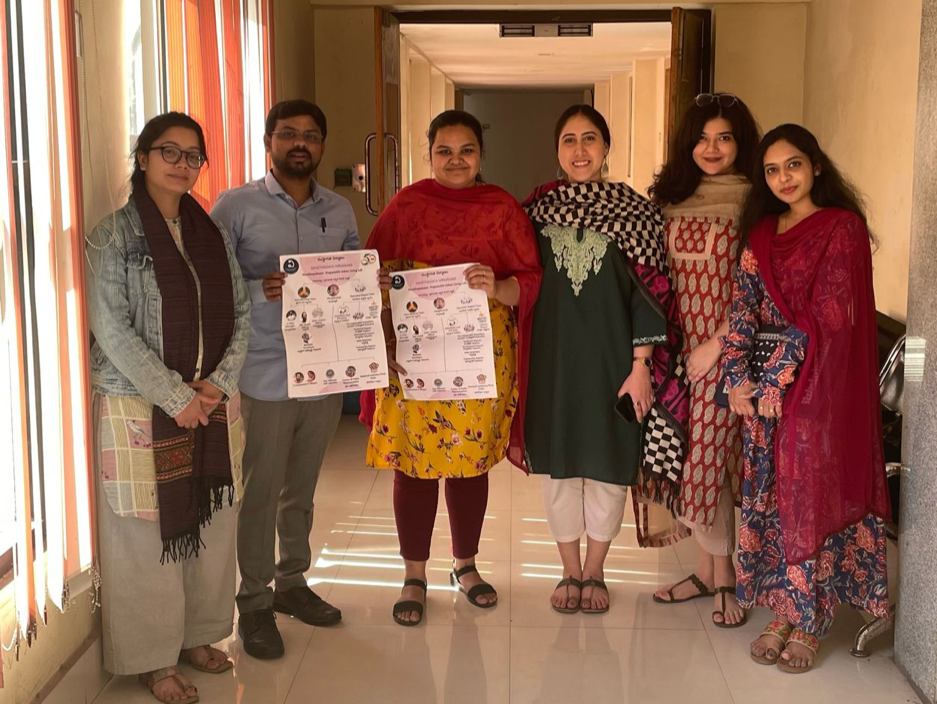
Deepshikha Sinha, from C-Cube team and T-CAP partner organisation memeber with Ms Sameera, City Operation Centre (COC), GVMC
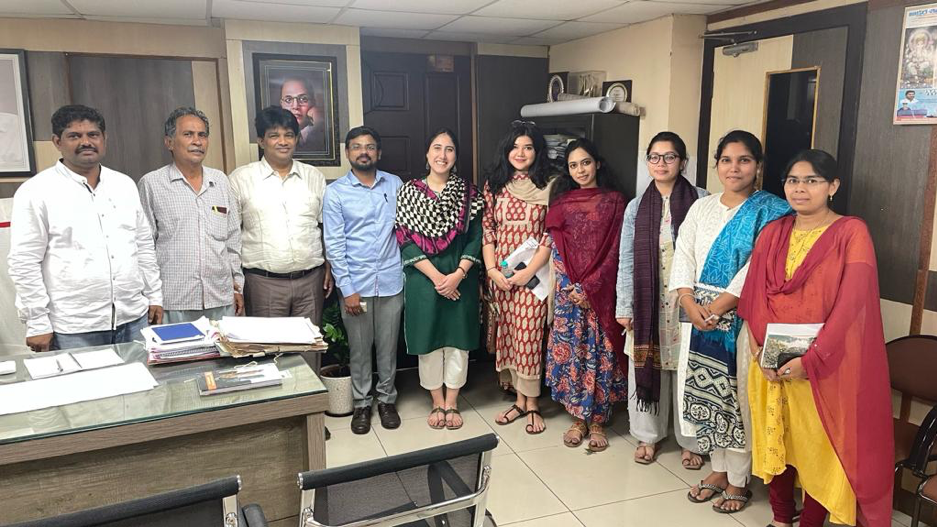
T-CAP team from NIUA and TERI with Visakhapatnam Metropolitan Region Development Authority (VMRDA) officials
T-CAP Consultations in Visakhapatnam using Participatory Data Driven Decision-Making
Climate Centre for Cities (C-Cube)
Climate Change
Under the T-CAP Project, the project team conducted meetings with experts, local officials, and community consultations as a part of the groundwork for a use-case to be tested with Vizag - Prajamukhi Urban Living Lab (V-PULL) on 30 January to 01 February 2024 in Visakhapatnam.
Deepshikha Sinha, from the C-Cube team with partner organisations, looked into aspects of understanding critical conditions in a neighbourhood-level test bed to develop climate resilience, which involves the participation of all stakeholders (residents, government departments, non-governmental organisations, research institutes, digital experts, etc). The interactions initiated buy-in and feedback from various stakeholders for ULL structure and their roles in a living lab approach.
CAP 2nd Stakeholder Consultation in Gujarat
Inclusive Cities Centre (ICC)
Climate Centre for Cities (C-Cube)
NIUA and Global Covenant of Mayors (GCoM) South Asia have partnered to support the Jamnagar and Junagadh Municipal Corporations in developing Climate Action Plans for their respective cities. Through this collaboration, the project aims to assist in implementing climate and energy commitments by translating them into actionable plans through target and priority-setting processes, based on the Climate Action Plans. Over the past few months, a dedicated team at C-Cube has been collecting relevant data, compiling a comprehensive Greenhouse Gas (GHG) inventory, and conducting a thorough vulnerability assessment.
During a recent city visit from 20 February 2024 in Jamnagar and 22 February 2024 in Junagadh, the C-Cube team presented their data analysis through in-depth group discussions with key officials from the city and state departments to identify priority areas requiring immediate attention. This included assessing existing and proposed projects in priority areas and contributing to formulating recommendations and action points to strengthen climate initiatives for Jamnagar and Junagadh Cities.
Impact Assessment for ‘Drink from Tap Mission’ initiated in 24 ULBs in Odisha
Climate Centre for Cities (C-Cube)
Water & Environment (W&E)
Following a successful evaluation of Odisha’s ‘Drink from Tap Mission’ in Puri in 2022, NIUA has been engaged by the Water Corporation of Odisha (WATCO) to institutionalise an Impact Assessment for Drink from Tap Mission in 24 ULBs across Odisha. Additionally, NIUA will develop a Standard Operating Procedure for implementing Drink from Tap Schemes.
Dr. Debolina Kundu, Director (AC), Dr. Victor Shinde, Head C-Cube, along with Jyoti Verma and Anna Brittas from C-Cube at NIUA, initiated a project with an official visit to Bhubaneswar and Puri on 19-20 February 2024 to meet Shri G. Mathi Vathanan, Additional Chief Secretary of Odisha. The team held discussions with Shri Pradipta Kumar Swain, CEO of WATCO, as well as stakeholders from the Department of Housing & Urban Development, Odisha Water Supply & Sewerage Board and Odisha Urban Academy to strengthen NIUA’s partnership with the Government of Odisha.
Tripura CM Inaugurates CITIIS Pilot Projects
Climate Centre for Cities (C-Cube)
City Investments to Innovate, Integrate and Sustain (CITIIS)
The Hon’ble Chief Minister of Tripura, Dr Manik Saha, inaugurated two pilot projects under the Haora River Front Development Project, implemented under the CITIIS program. Hon’ble Mayor of Agartala, Mr Dipak Majumder and local corporators were also present at the event, which took place on 13 February 2024.
One of the components inaugurated by the CM includes developing a green space for horticulture and floriculture along with tree plantation, landscaping, construction of buildings and pathways, illumination of the site, etc. The other component entails the in-situ treatment of wastewater coming through five major drains in Agartala using phytoremediation and bioremediation before it is discharged into the Haora River. The Hon’ble Chief Minister visited these project sites and praised the efforts of the project team.
The CITIIS project in Agartala is developing a 1.7-km stretch of the Haora riverfront to make the area greener, safer and more accessible for the city's people. Read more here: https://citiis.niua.in/projects/agartala
Skill Training Conducted for Sanitation Workers in Odisha
Climate Centre for Cities (C-Cube)
City Investments to Innovate, Integrate and Sustain (CITIIS)
A 3-day training program for Core Sanitation Workers was conducted on 20-22 February 2024 in Rourkela. The training was conducted under Odisha’s GARIMA scheme by the Odisha Urban Academy, in collaboration with the CITIIS program, with Urban Management Centre as the knowledge partner. The scheme aims to upskill around 1500 core sanitation workers in Odisha to ensure they have greater safety and dignity of labour.
45 trainees from Angul, Talcher, Brajrajnagar, Anandpur, Keonjhar, and Rourkela received training and knowledge through classroom and practical sessions. This was followed by a post-training assessment. All the trainees received certificates at the end of the program.
Delegation of ULBs Visits CITIIS Project Sites in Ujjain
Climate Centre for Cities (C-Cube)
City Investments to Innovate, Integrate and Sustain (CITIIS)
A delegation of 20 members from the Municipal Corporations of Mysuru, Bhopal, Guntur, Vijayawada, and Jaipur visited various Smart City projects in Ujjain on 24 February 2024. The ULB officials were joined by Dr Debolina Kundu, Director (Addl Charge) of NIUA and other senior members of NIUA.
As part of the visit, the delegation explored culturally significant heritage sites like the Maharajwada Complex and Mahakal Dwar, the Neelkanth Path (R18) smart road, and the basement parking initiative, which are all components of the CITIIS project in Ujjain.
CITIIS is upgrading existing structures, developing pedestrian infrastructure in Ujjain, and revitalising the Rudra Sagar Lake to improve the experience of residents, pilgrims, and tourists in the city. Read more here: https://citiis.niua.in/projects/ujjain.
Ms Shraddha Tomar - Solid Waste Management and MIS Expert in Indore Municipal Corporation explaining Indore's Journey of becoming the Cleanest City in India
Exposure Visit to Indore and Ujjain under SCI-AP Project
Climate Centre for Cities (C-Cube)
Sustainable Cities Integrated Approach Pilot in India
A two-day exposure visit to Indore and Ujjain was organised by the Resources and Waste team led by Paramita Datta Dey. The participants included senior officials from Mysuru, Bhopal, Guntur, Vijayawada, and Jaipur municipal corporations. NIUA Director (Additional Charge) Dr Debolina Kundu was also present. MoHUA was represented by Diwakar Barnwal and P.K. Singh. The UNIDO team was led by Senior Advisor N.P Singh. The other team members were the city coordinators, Ramanna and Sameer Saraswat, B. Mishra and the national coordinator, Dipika Lele. This visit was part of our ongoing capacity-building initiative under the SC-IAP project.
The participants explored Indore's Solid Waste Management journey, from 6-bin segregated waste collection at the doorstep to cutting-edge waste processing facilities, including a mechanised MRF and transfer station and a Bio-CNG plant. Witnessing Indore's remarkable achievement of being named the cleanest city for the seventh consecutive time was a highlight of the day!
The participants also visited Ujjain's smart city projects and Swachh Bharat Mission initiatives, marvelling at their innovative solutions such as floral waste management and cloth-to-paper recycling plants.
This visit was covered in several newspapers.
Pushing the Nature-based Solutions Agenda
Centre for Urbanisation and Economic Growth (CUEG)
UrabanShift
In our endeavour to link NBS with the UrbanShift Country Project goals, an RfP on Guidelines for Preparing Resilient Coastal Zone Development Plan (RCZDP) was published on 10 January 2024. The bids received were opened on 20 February 2024. The Project Management Unit (PMU) at NIUA, is now evaluating them as per the pre-qualification criteria of the RfP.
Urban Transport Fund
Centre for Urbanisation and Economic Growth (CUEG)
UrabanShift
Stakeholder consultations were initiated with the Divisional Commissioner of Pune United Metropolitan Transport Authority (PUMTA) to further the project activity of preparing the Roadmap of Institutionalising and Operationalising Urban Transport Fund (UTF).
Sustainable Urban Development - Smart Cities (SUDSC) Project
Centre for Urbanisation and Economic Growth (CUEG)
Sustainable Urban Development - Smart Cities (SUDSC) Project
NIUA has entered into a Strategic partnership with GIZ for the phase-II of Sustainable Urban Development - Smart Cities (SUDSC) project and is rendering an ‘end-to-end’ ecosystem support in executing the following 4 components i.e., Policy Support, Capacity Development, Mainstreaming Innovations and Knowledge Exchange.
Snapshots of the recent advancements:
Capacity Development
NIUA has supported executing the Capacity Budling program on Data Analytics and Visualisation (DAV) in the partner states/ cities.
- 90 officials from the Kerala Administrative Service (KAS) underwent this training at the Institute of Management, Thiruvananthapuram, Kerala from 31 January- 2 February 2024.
- Officials from the urban local bodies, town & country planning department and other line departments from Tamil Nadu (approx. 25 ) attended this training at Anna Administrative Staff College (AASC), Chennai from 20-22 February 2024.
Mainstreaming Innovations
- Several workshops were organised wherein business models for developing digital solutions and successful case studies were presented to officials of the partner cities. NIUA team actively participated in two workshops focussing on ‘Climate proofing urban planning and infrastructure’ held at Bhubaneshwar (12 February 2024) and Guwahati (14 February 2024).
- Communities of Practice (CoP) on Digital Solutions for Urban Governance and Solid Waste Management was launched in Kochi on 20 February 2024.
Knowledge Exchange
7th SUDSC Webinar series was initiated for deliberations on themes of Climate resilience, Digital innovations, and Municipal finance. The 7th webinar under this series titled 'Climate-proofing Urban Infrastructure (focus on Flood Resilience)' was conducted on 23 February 2024.
The webinar focussed:
- Urban flooding patterns.
- Conducting risk assessments with a focus on vulnerable groups.
- Implementing resilient interventions encompassing technical, financial, and governance aspects to address flooding challenges.
Highlighting the Need for Child-Friendly Public Spaces
Inclusive Cities Centre (ICC)
Inclusive Cities Centre (ICC)
Van Leer Foundation and ICLEI South Asia organised a workshop on the ‘Usage of Public Spaces and the Impact of Climate Change and Worsening Air Quality on Young Children, their Caregivers, and Pregnant Women in Indian Cities’. Utsav Choudhury, Program Manager, ICC at NIUA as a panellist highlighted the need for adequate and quality public spaces, especially for children in urban areas, and how investing in children’s development enables a nation’s GDP growth. He put forth the following points:
- Safe and inclusive public spaces promote inclusivity, interaction, and growth for children from diverse backgrounds.
- Secure play areas that do not discriminate against any child are vital in every public space.
- Standards and guidelines are necessary for creating child-friendly public spaces.
- Inclusive public spaces for children, caregivers, and pregnant women exist in various locations.
- The ultimate goal is to make every public space inclusive and child-friendly, with national and state initiatives aligned.
In summary, NIUA underscored the importance of integrating inclusion into our mindset, governance, and administrative systems for creating child-friendly public spaces.
Municipal Reforms and Revenue Augmentation in Jharkhand
Centre for Digital Governance (CDG)
National Urban Digital Mission (NUDM)
NUDM organised the 7th session in the series of best practices in collaboration with the State Urban Development Agency (SUDA), Govt. of Jharkhand on 02 February 2024.
Over 130 distinguished urban department officials from all the States/UTs as well as ULB officials participated in the session providing insights into the reforms adopted by the Govt. of Jharkhand to enhance the municipal revenues from Property Tax, Trade License & Water User Charges implemented through a PPP-based revenue-sharing model.
Read more: https://linkedin.com/feed/update/urn:li:activity:7161607735313125376
NULP Launched Needs Assessment- Phase 2
Centre for Digital Governance (CDG)
National Urban Learning Platform (NULP)
NULP launched its phase 2 needs assessment survey as part of its ongoing efforts to enhance capacity building for city/ state officials. This survey is designed to capture the learning and upskilling needs of city/ state officials and urban practitioners to tailor the online programs and content resources to meet requirements. The insights gathered from this assessment will also identify opportunities for academia, research organisations, and industries to contribute to capacity-building initiatives.
NULP is currently seeking inputs in ensuring the provision of relevant and impactful learning experiences for all urban practitioners.
Access the survey here: https://lnanulp.niua.org/phase-2/
Dialogues and Discussions
Potential of NBS for Flood Mitigation Highlighted at a Panel Discussion
Climate Centre for Cities (C-Cube)
Climate Change
The regional launch of the Asian Infrastructure Investment Bank's report, conducted in collaboration with NIUA as the knowledge partner and co-organiser, featured a panel discussion on 'Nature as Infrastructure' on 12 February 2024, at the India Habitat Centre in New Delhi.
Dr. Debolina Kundu, Director (AC) at NIUA, delivered the welcome remarks, highlighting the alarming loss of wetlands and biodiversity. The comprehensive presentation of the report was given by Dr. Erik Berglof, Chief Economist of AIIB, providing insights into the spectrum of nature integration, from natural to green and grey infrastructure. AIIB Senior Economist Abhijeet Sengupta and Economist Abhinav Narayanan also presented key findings from the report. Suman Bery, Vice Chairperson, NITI Aayog, delivered a keynote address, drawing upon the close relationship between man and nature as the basis of various philosophical revolutions.
The subsequent panel discussion, moderated by Jagan Shah, CEO of The Infravision Foundation, featured experts including Dr. Ritesh Kumar, Director, Wetlands International South Asia, Vaishnavi T G Shankar, Lead, Climate Centre for Cities (C-CUBE), Dr. Faiyaz Ahmed Khudsar, Biodiversity Expert, CEMDE , University of Delhi and Nitin Bassi, Senior Program Lead, Council on Energy, Environment and Water (CEEW). The panel emphasised the transformative potential of integrating nature into development agendas, stressing the importance of understanding the economic potential of nature and expanding financial instruments accordingly.
Vaishnavi T G Shankar, Lead at the Climate Centre for Cities, shared the following insights:
- Highlighted C-Cube's ongoing initiatives and underscored the importance of informed decision-making in adopting appropriate nature-based solutions (NBS).
- Emphasized the potential of NBS to provide decentralised solutions for flood mitigation based on the reflections drawn from the ClimateSmart Cities Assessment Framework.
- Highlighted the Center's efforts in developing flood vulnerability assessments and resilience strategies for five cities.
Through this collaboration and exchange of expertise, stakeholders gained valuable insights into the role of nature-based solutions in enhancing urban resilience and sustainability.
Learning Gender-Inclusive Practices from Odisha
Inclusive Cities Centre (ICC)
Inclusive Cities Centre (ICC)
As a part of mainstreaming gender inclusion across sanitation, an exposure visit was organised to Bhubaneshwar, Odisha on 30-31 January 2024. Monica Thakur from ICC at iNIUA participated in the visit.
Key highlights of the visit:
- Highlighted Odisha's commitment to employing women and transgender people in the sanitation sector.
- Visited key locations such as the Micro Composting Centre (MCC), Material Recovery Facility (MRRF), FSTPs, and the Biju Adarsh Colonies in Bhubaneshwar.
- Gained insights into the schemes undertaken by the State of Odisha and their on-ground implementation.
- Interacted with scheme beneficiaries, trainers from Odisha Urban Academy (OUA), and organisations working on the ground to understand the implementation process, gender and disability inclusion, and participatory data collection with SHGs.
- Assess the spatial, economic, and social inclusion of beneficiaries in the sanitation value chain of Odisha through efforts such as ‘Garima Gruh’, health insurance for sanitation workers, ‘Jaga Mission’, and ‘Pad Bank’.
The visit concluded with a presentation by NIUA, summarising key takeaways and recommendations for further enhancing gender and disability inclusion in sanitation.
Urban Governance Opportunities and Challenges Highlighted in ‘Digital Citizen Engagement’ Webinar
Centre for Digital Governance (CDG)
National Urban Digital Mission (NUDM)
Manpreet Singh, CPO-NUDM was a Chief Guest in the Webinar on ‘Digital Citizen Engagement’ organised on 21 February 2024 by Sattva Consulting.
He addressed the participants about the opportunities and challenges in urban governance and shared NUDM-NIUA’s work in the realm of online delivery of Urban citizen services.
Read More: https://www.linkedin.com/feed/update/urn:li:activity:7166664035101229056
Thematic Focus: Climate Change - Nature Based Solutions (NBS)

“
Over 3.3 billion people live in places that are highly vulnerable to climate change.
”
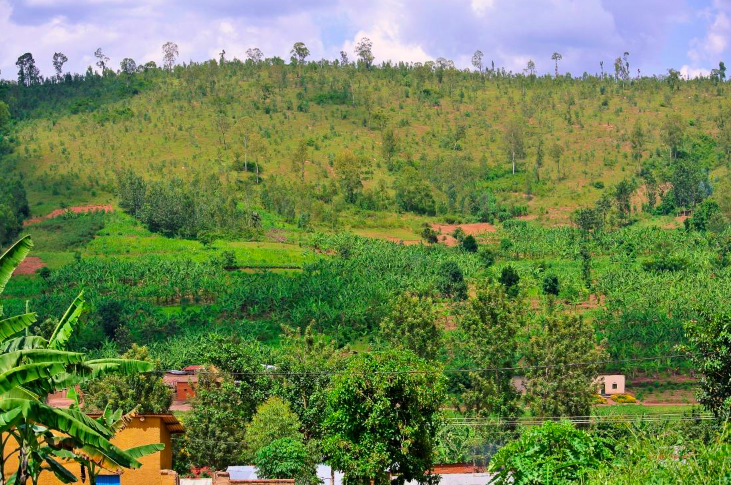
“
USD 393 Billion could be saved by 2050 by using NBS, which can reduce the intensity of climate hazards by 26%, stabilising warming below 2°C.
”
Resources
Building Climate-Resilient Indian Cities: The Crucial Role of Ecosystem-Based Adaptation (EbA): The article focuses on Nature-based Solutions (NBS) by advocating for integrating Ecosystem-based Adaptation (EbA) strategies in urban planning to enhance climate resilience in Indian cities.
Building flood resilience: Learn about cost-effective, Nature-Based Solutions (NBS) for flood mitigation through real-world examples. This resource highlights how ecosystems like wetlands and urban green spaces can absorb floodwaters and enhance urban biodiversity.
https://www.linkedin.com/feed/update/urn:li:activity:7159118790243344384
#ClimateSimplified Series: Nature-Based Solutions:
Wondering how Nature-based Solutions can tackle climate change?
The City Climate Alliance, in collaboration with the India Forum for Nature-based Solutions, brings forward a series of short videos that help break our everyday jargon under NBS. An ongoing initiative has helped explain the terms 'Nature-based Solutions', 'Wetlands' and 'Sponge Cities' by partners and experts to make the concepts accessible and relatable.
In the news

The article emphasises the role of Nature-Based Solutions (NBS) in promoting climate resilience and environmental sustainability, It discusses the challenges and opportunities in NBS implementation,highlighting successful collaborations that have led to impactful environmental conservation efforts.
Staff Opinion
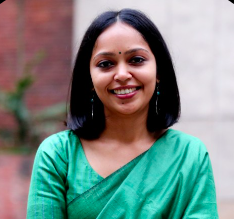
Vaishnavi Shankar
Lead - Climate Centre for Cities, NIUA
“
Embracing Nature-Based Solutions (NBS) presents an effective strategy for maximising benefits while minimising costs. Beyond addressing pressing climate vulnerabilities like flooding and urban heat, NBS offer immense potential to generate co-benefits such as enhancing air, water, and soil quality, conserving biodiversity, and fostering the health and well-being of communities.
At C-Cube, NIUA, our work empowers cities to make informed decisions regarding NBS adoption. We have curated a compendium of best practices for bolstering flood resilience and are currently developing a decision-nudge tool to steer cities towards NBS over conventional methods. Through the CCA, we're demystifying NBS knowledge via succinct video bytes, tackling one concept each week. Serving as the core partner of the India forum for NBS, we're committed to nurturing an enabling environment for widespread NBS adoption.
”
Knowledge Products
Publications
Articles
4th March 2024
Navigating the Urban Flood Conundrum: A call for holistic solutions
Urban Flooding
Contributors: Dr. Debolina Kundu & Ila Singh
9th February 2024
Navigating the Future: An in Depth Analysis of Government Technology Trends in 2024
Digital and Data
Contributors: Pankaj Sharma
9th February 2024
Navigating the Future: An in-depth analysis of Government Technology Trends in 2024
Digital and Data
Contributors: Pankaj Sharma
15th January 2024
Water
Contributors: Dr. Debolina Kundu & Ila Singh
Blogs
Job Opportunities
NIUA fosters an inclusive workplace environment where a diverse workforce is empowered to drive the institute's vision and objectives forward. Join us and contribute to India's urban transformation by making a meaningful impact.Check out the jobs and internship opportunities by clicking the link






